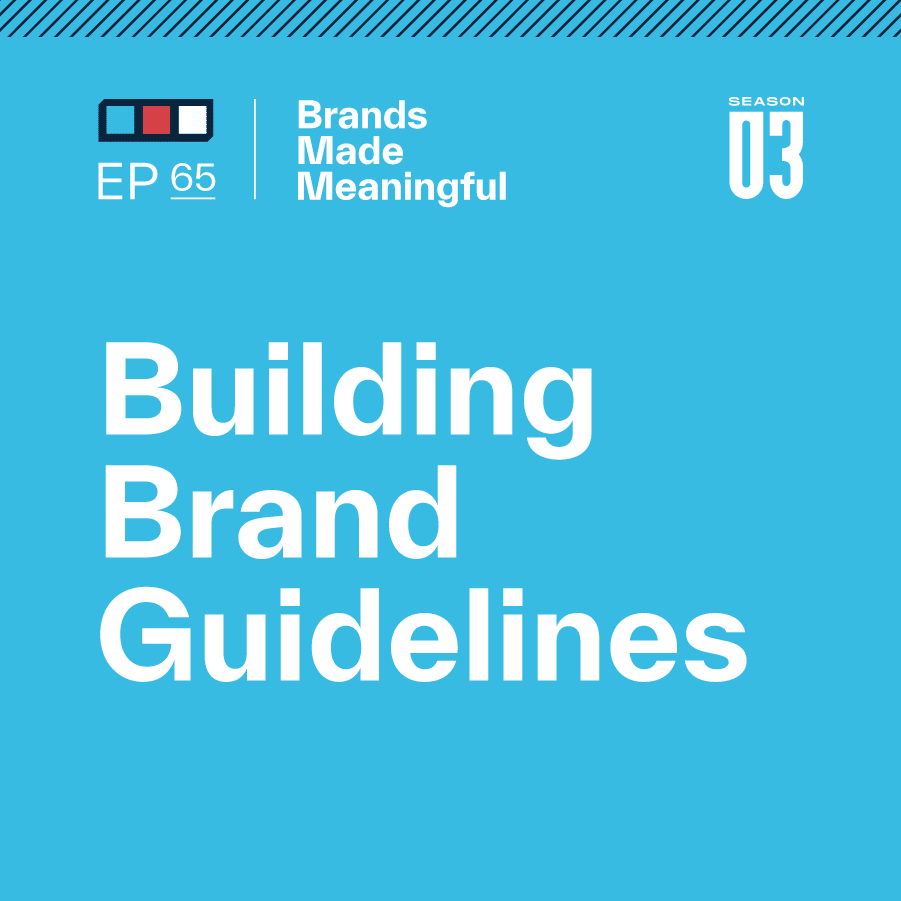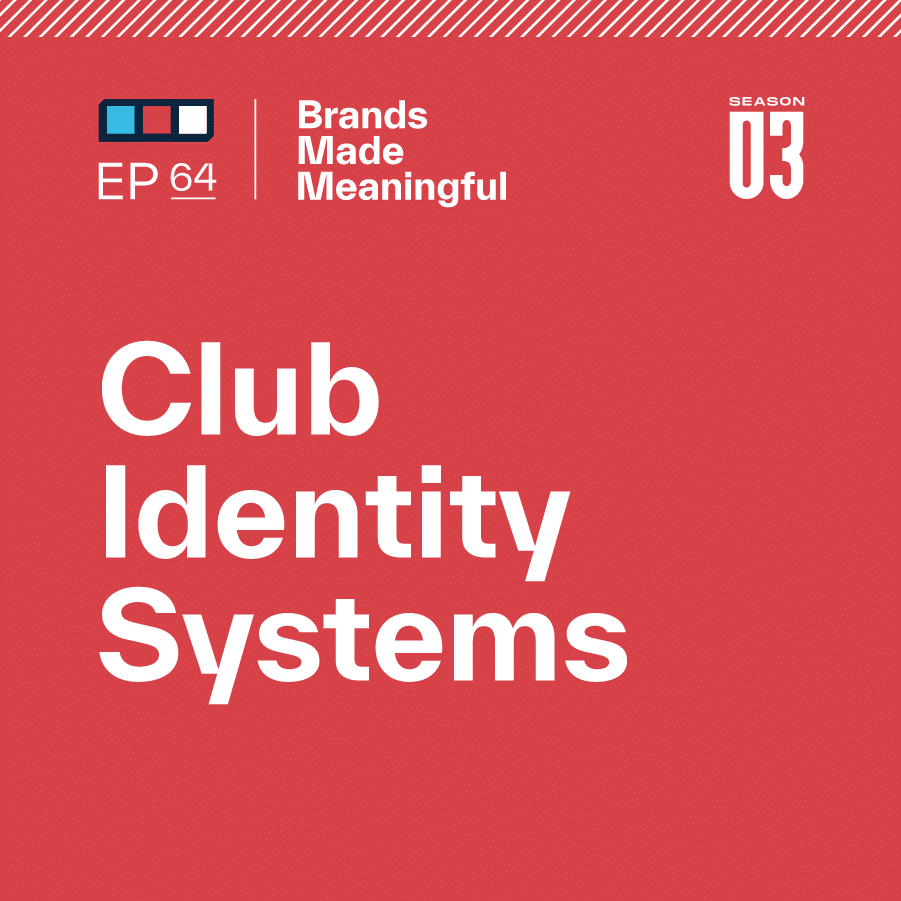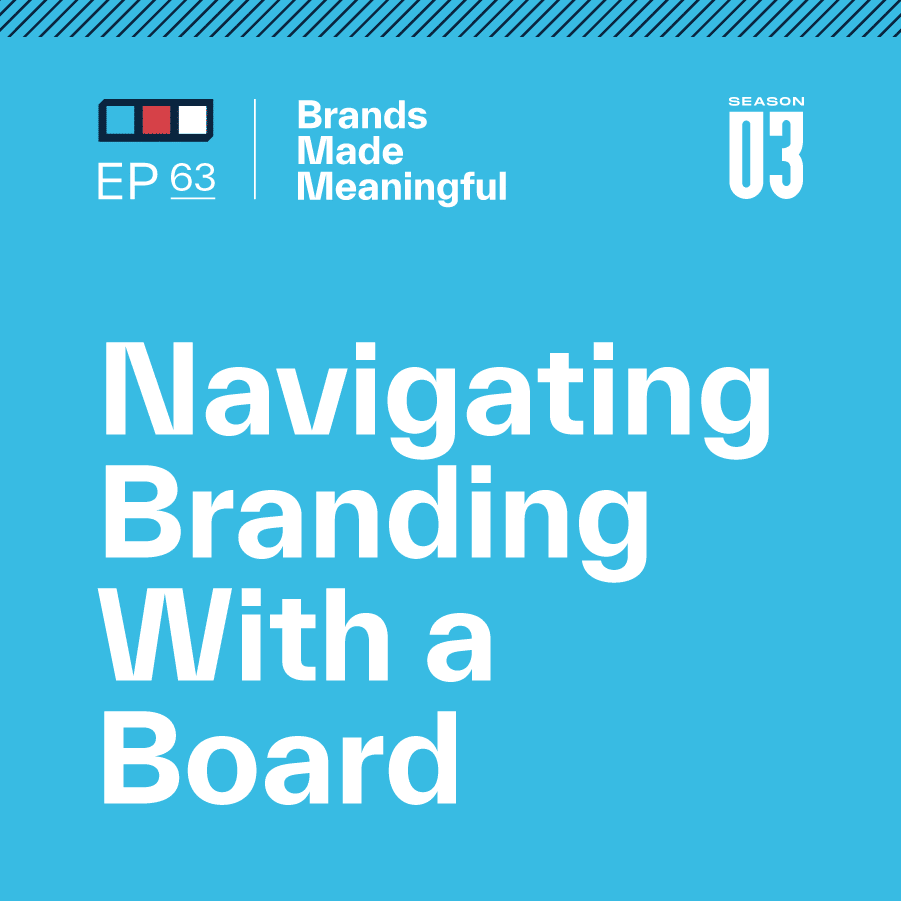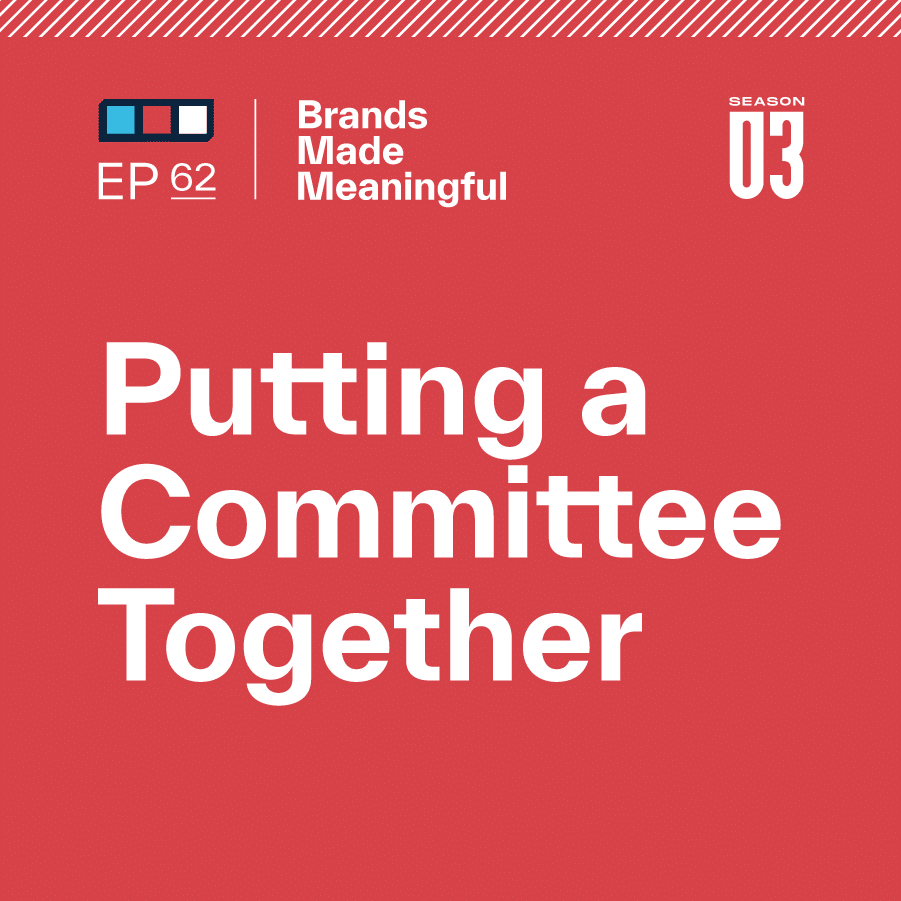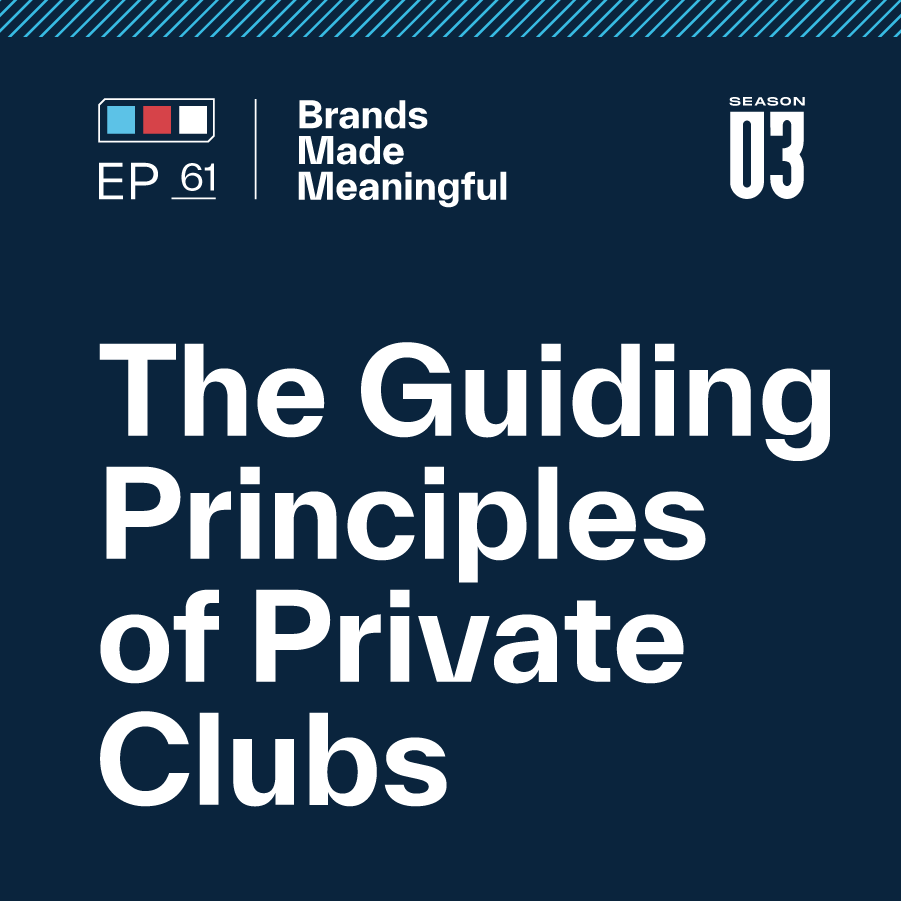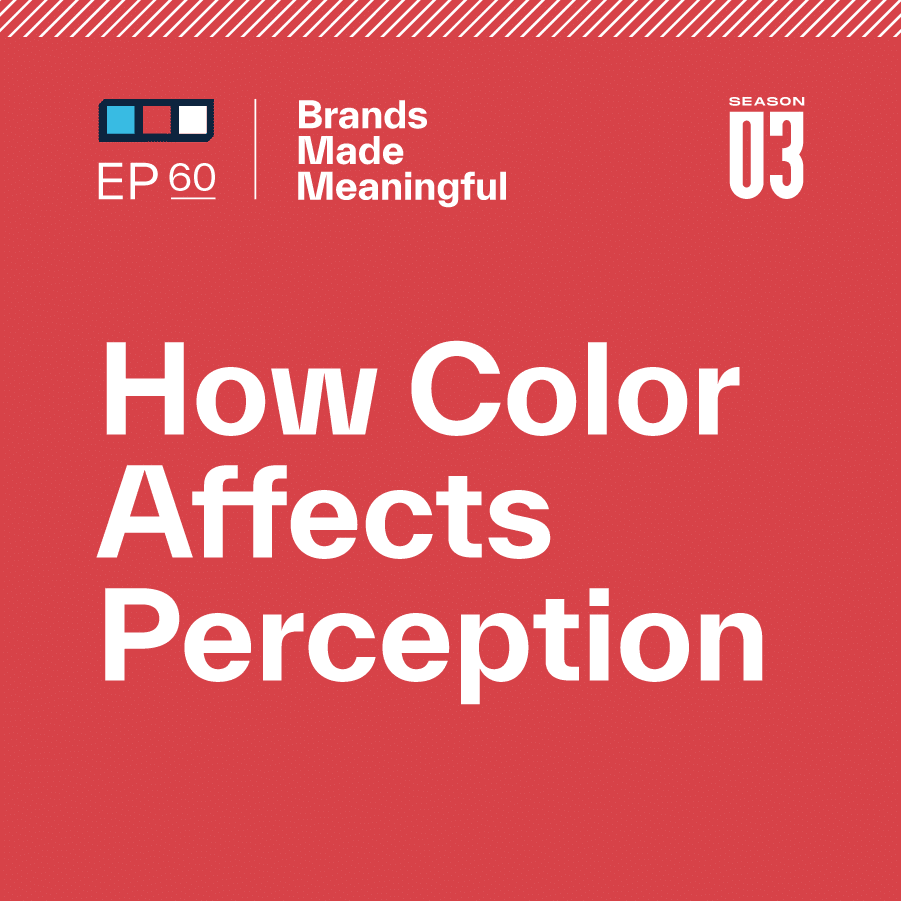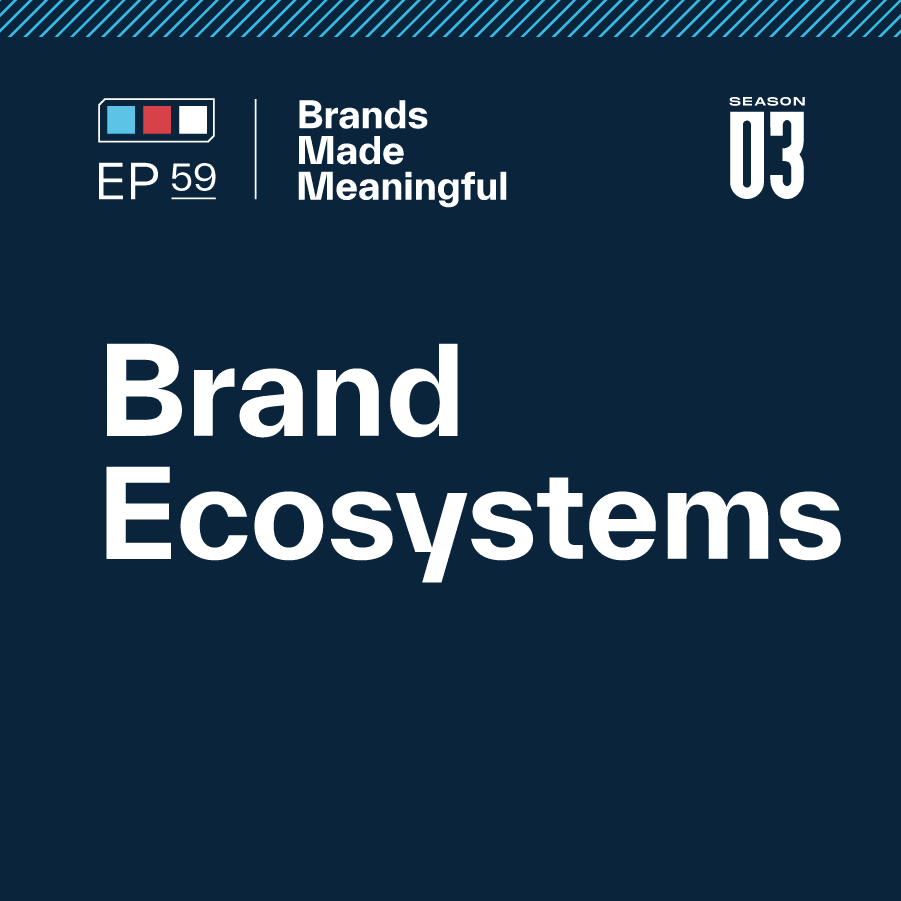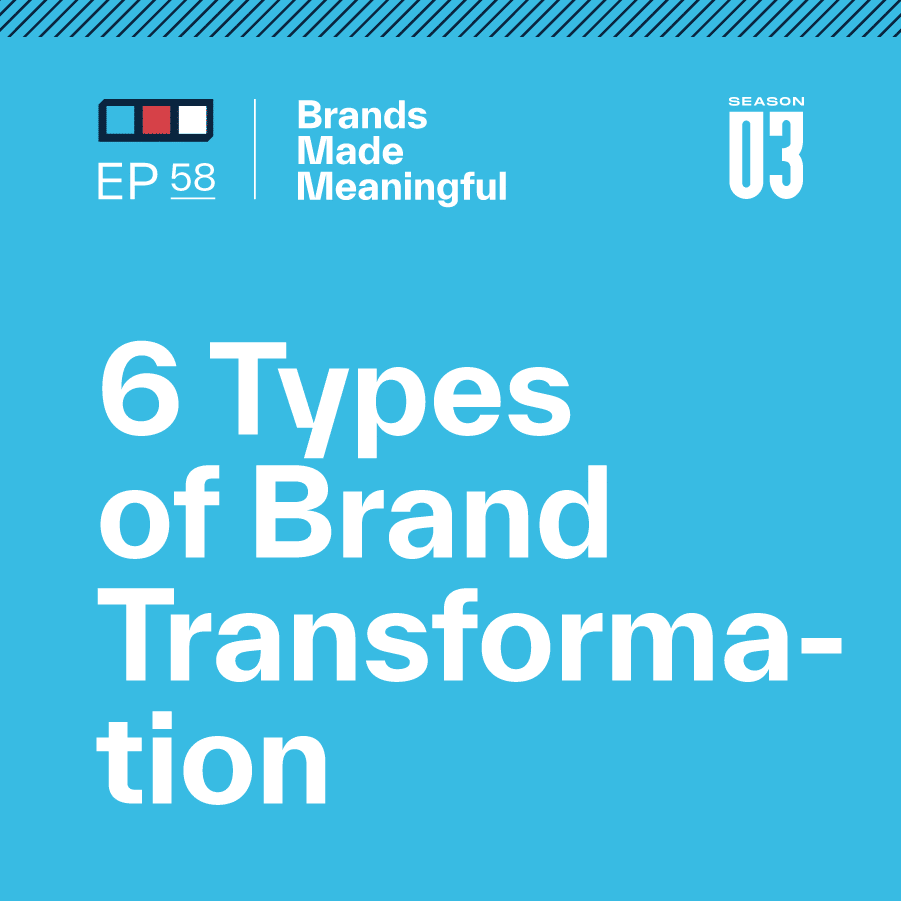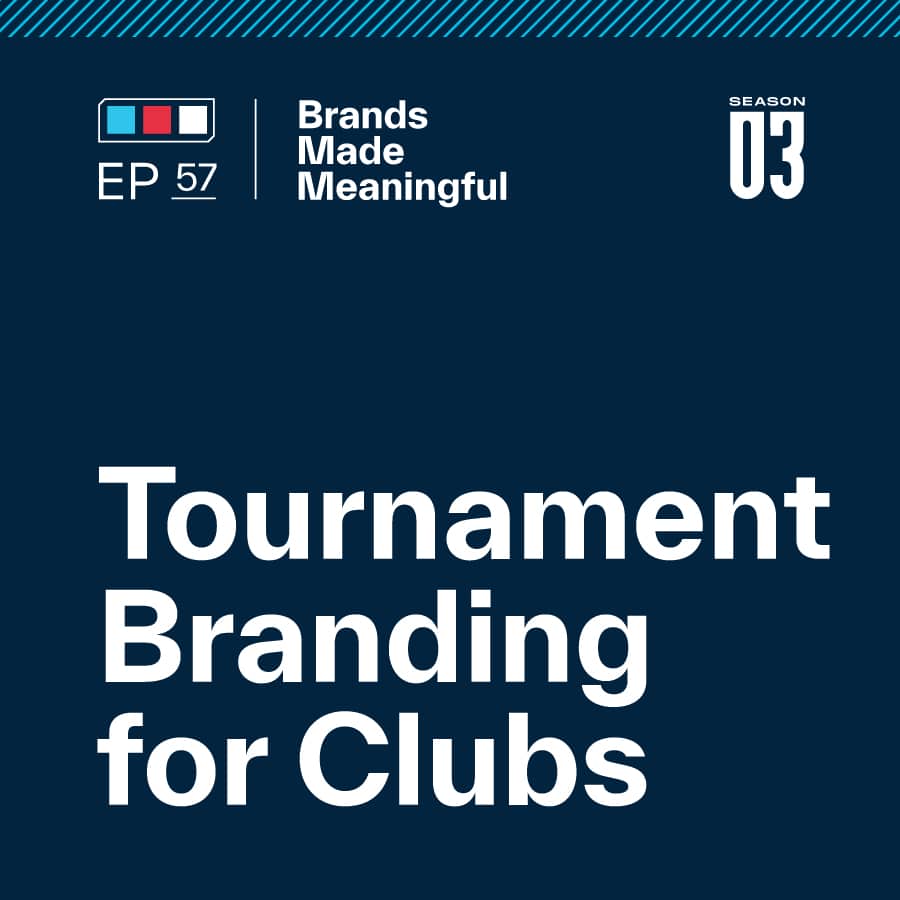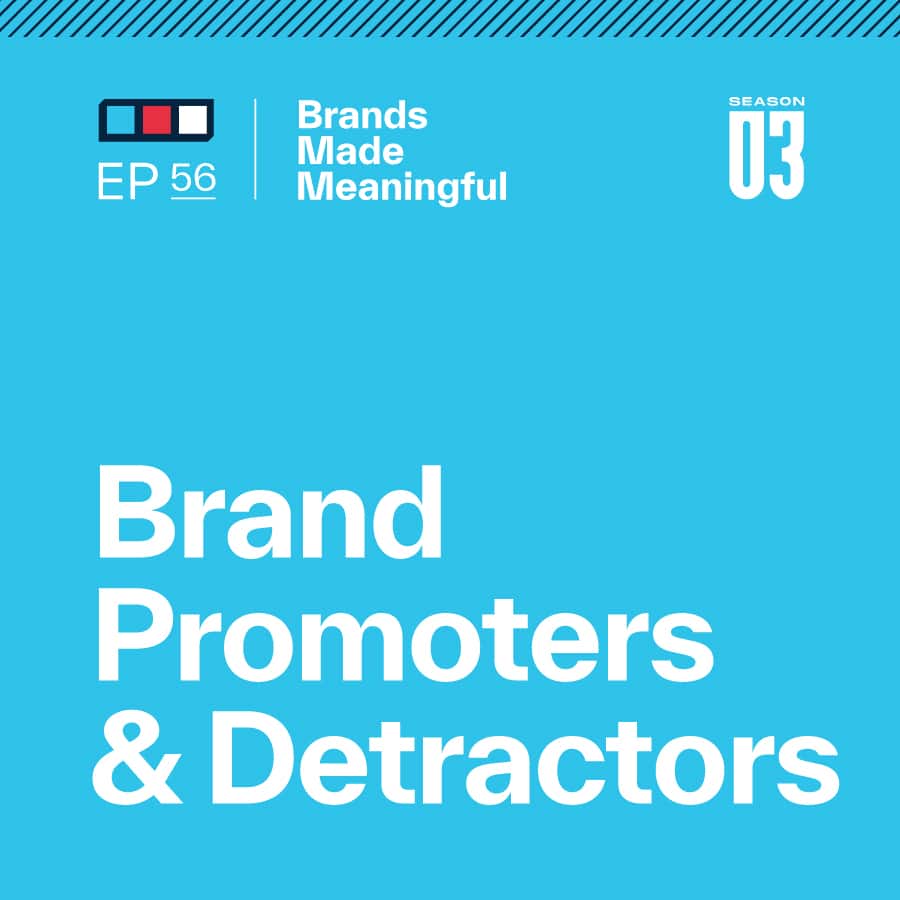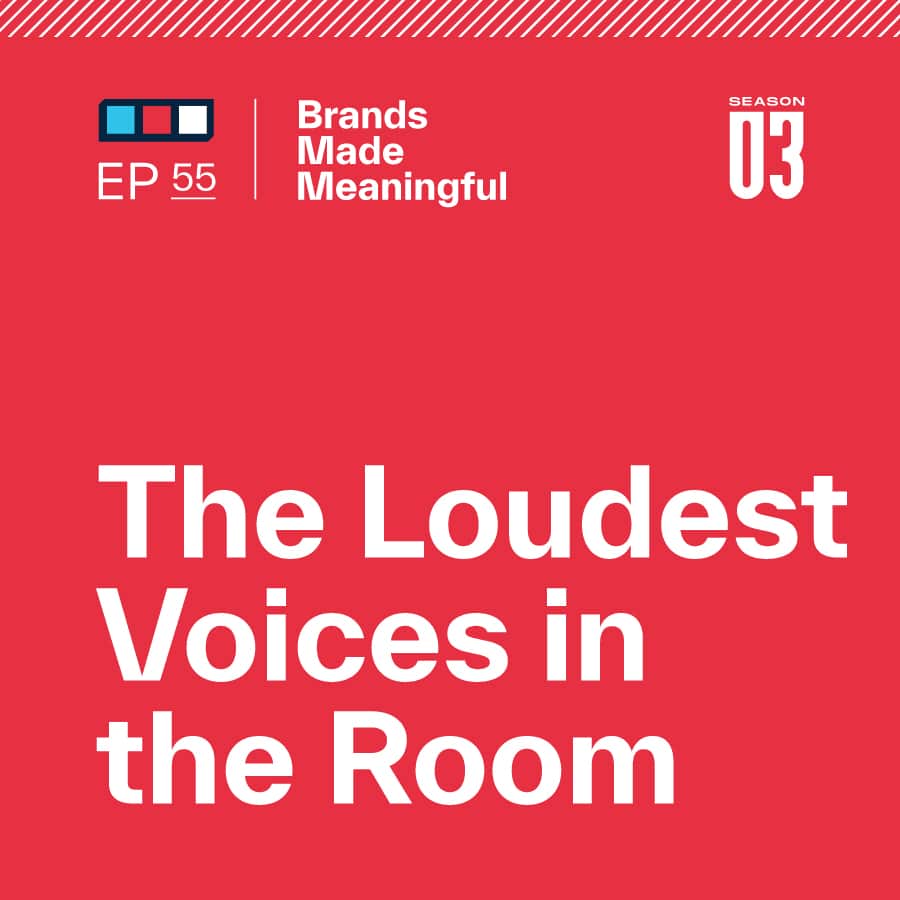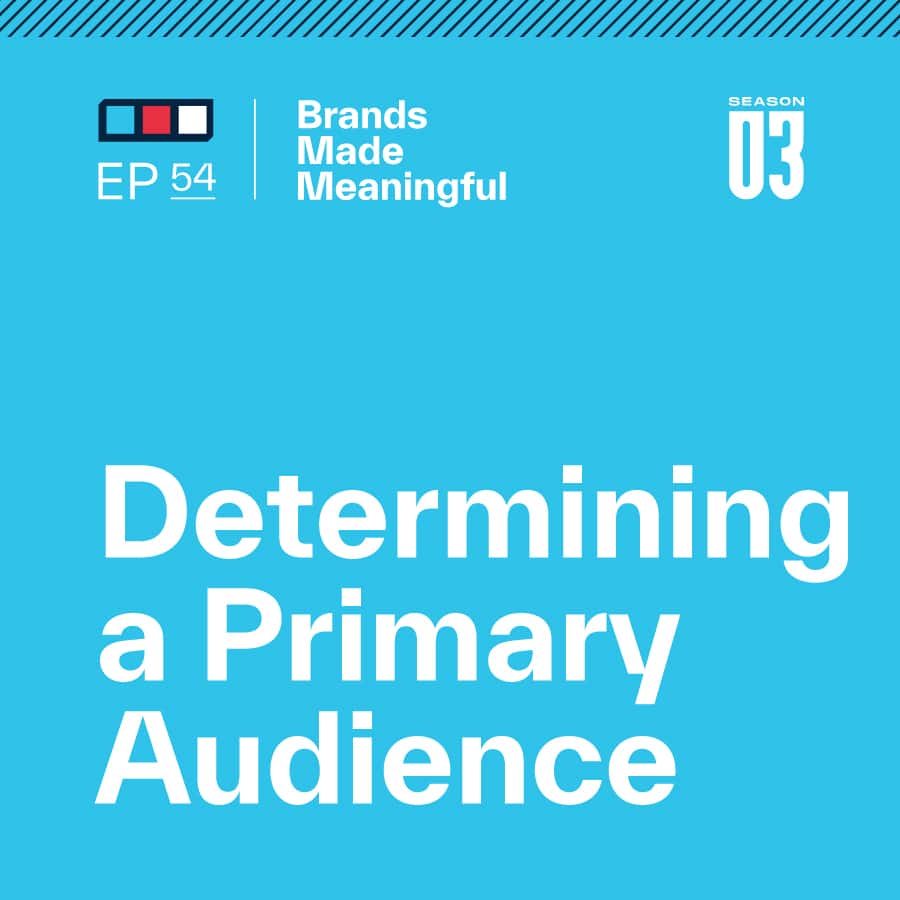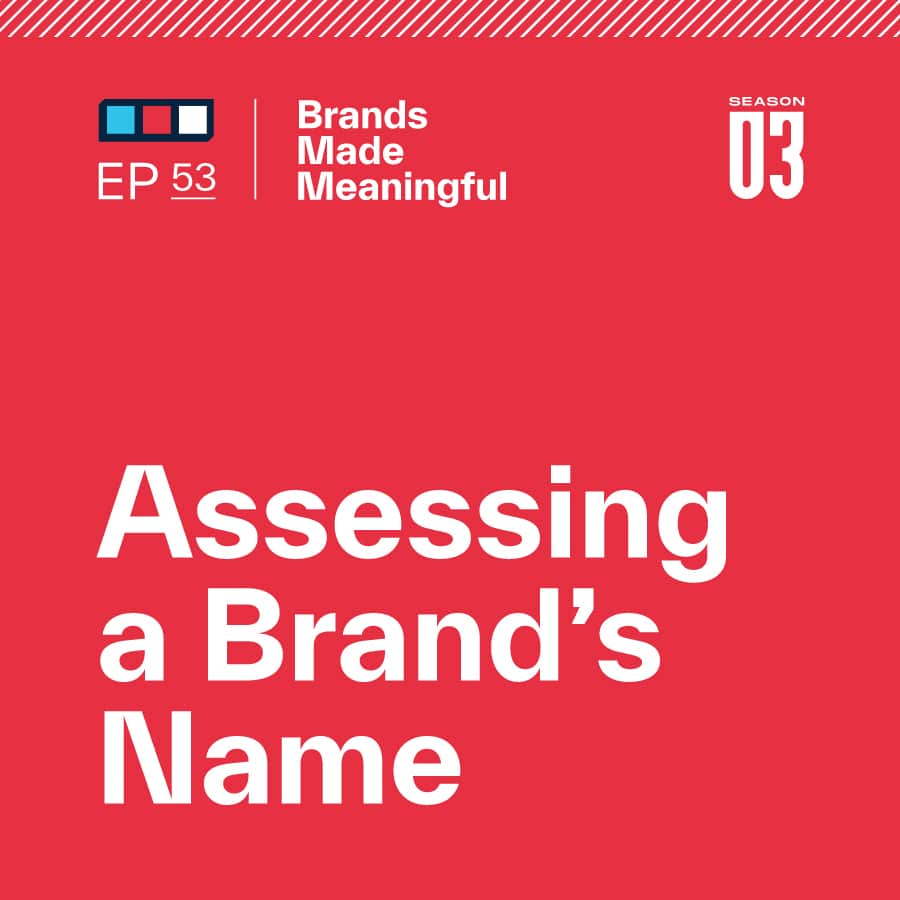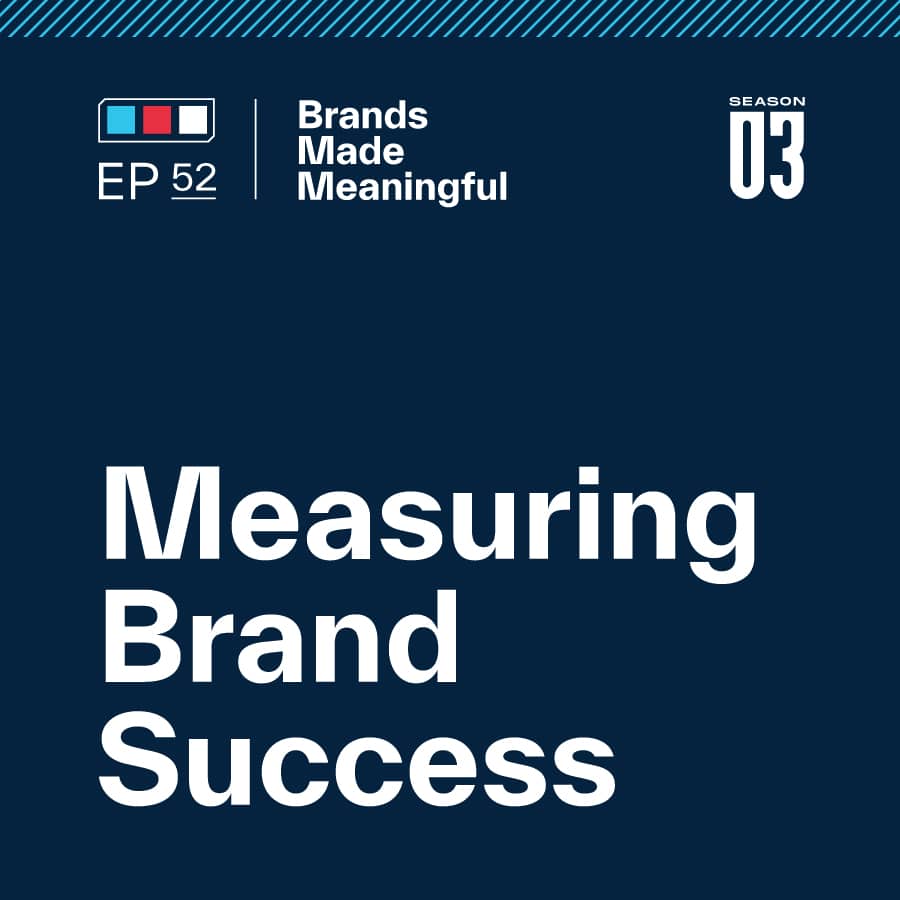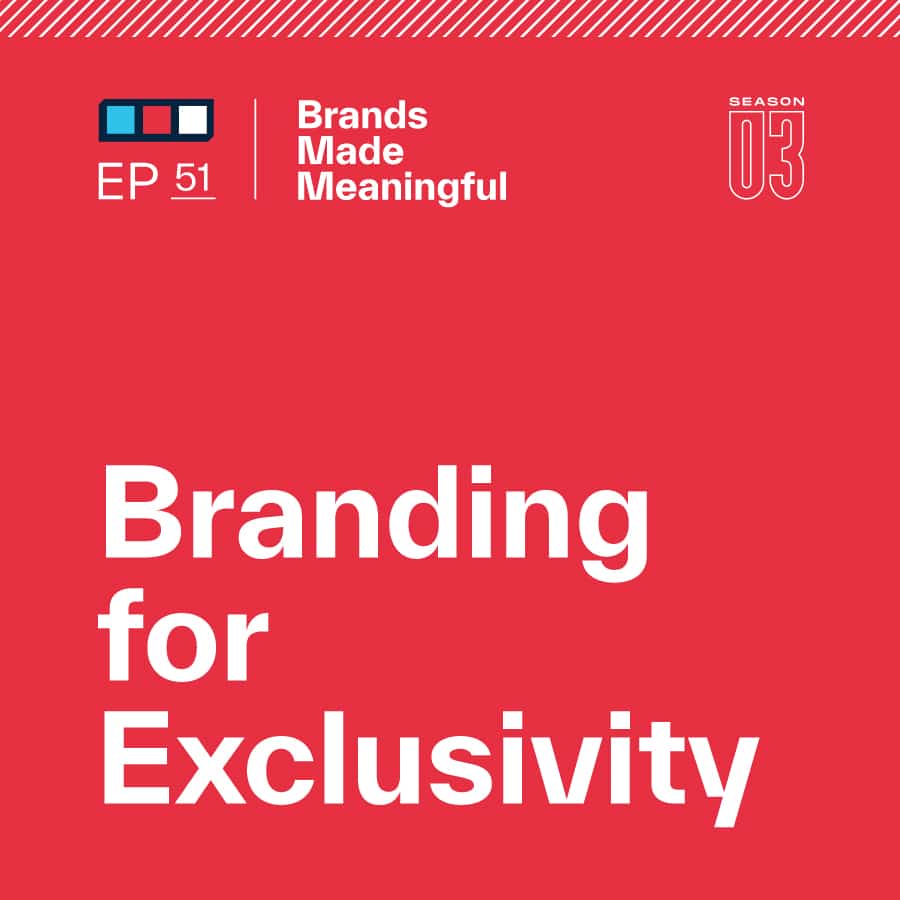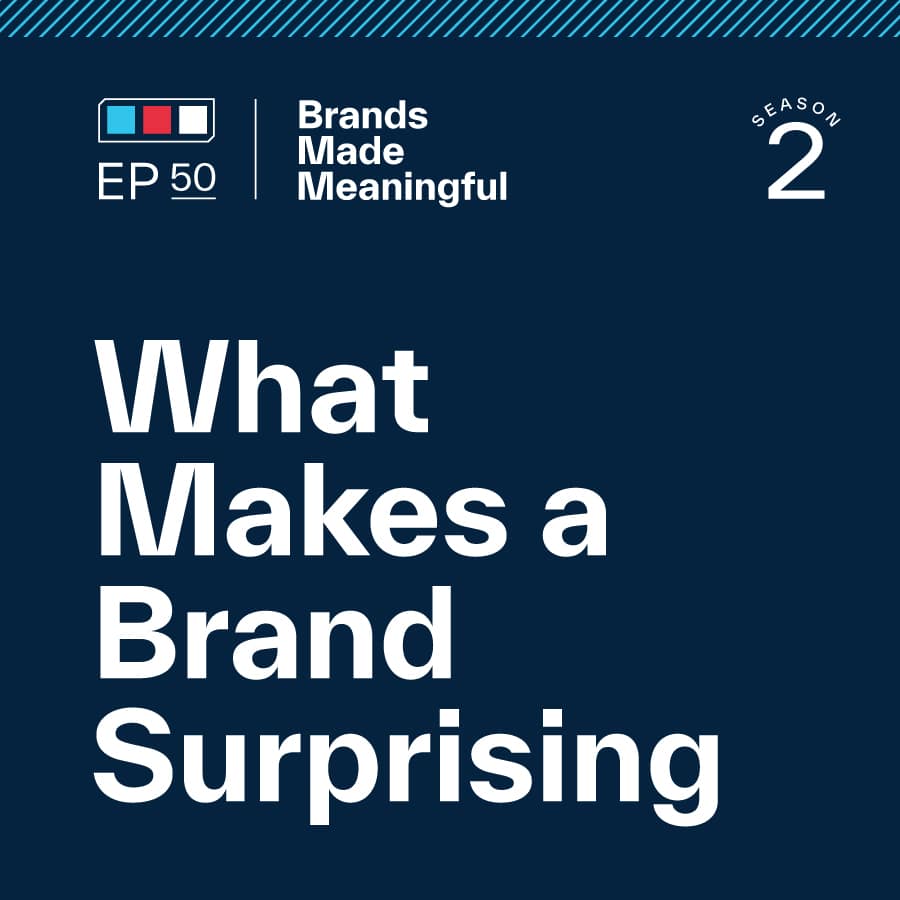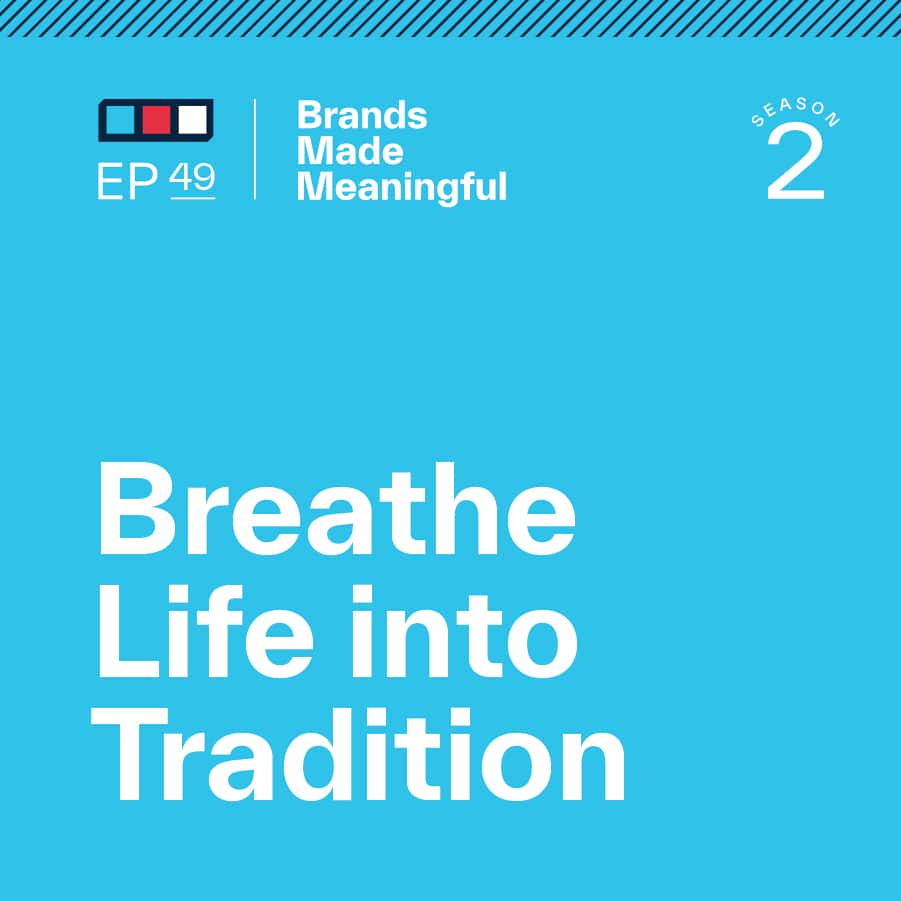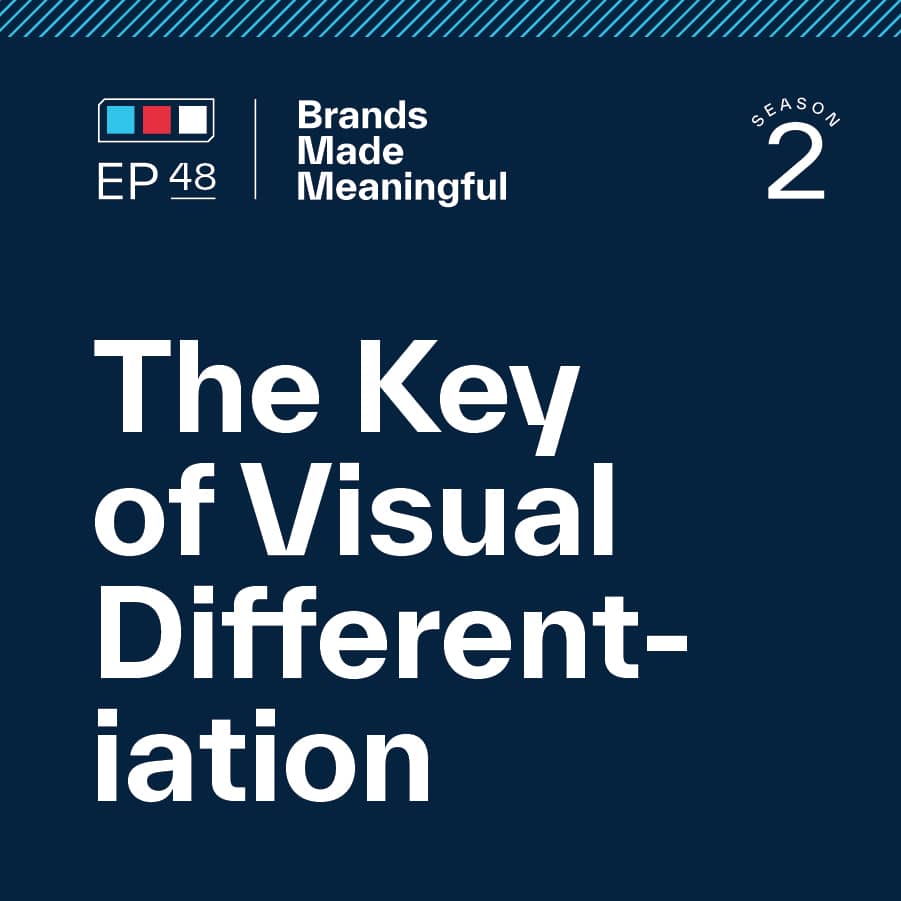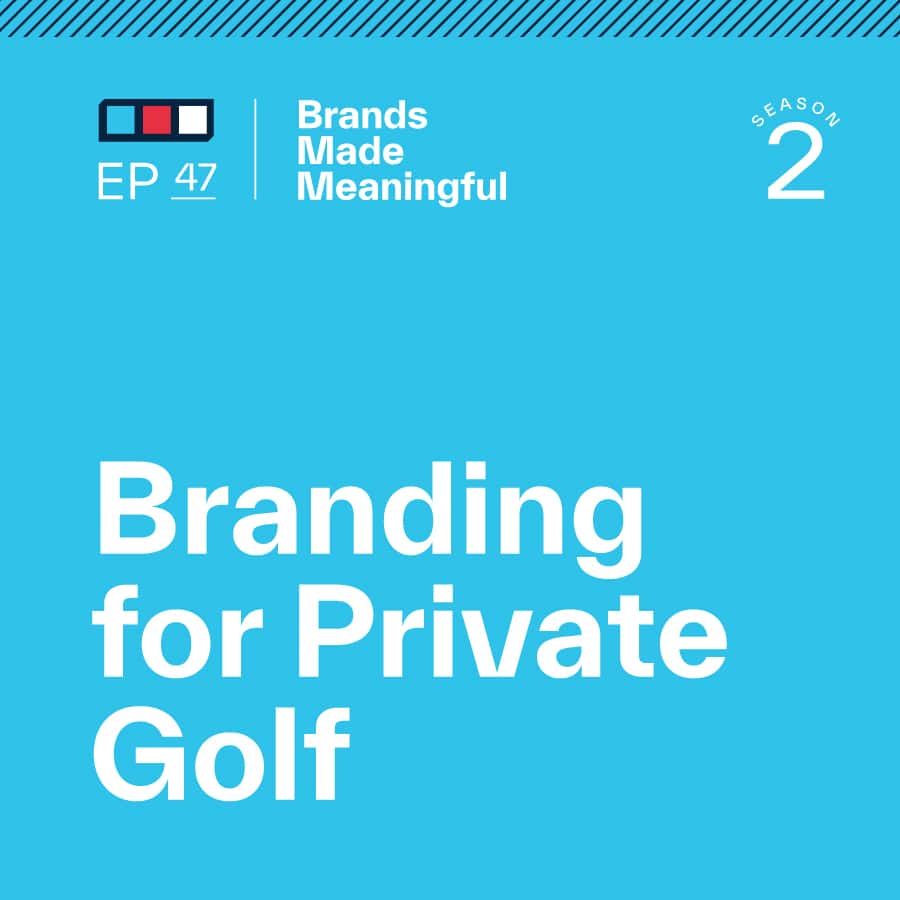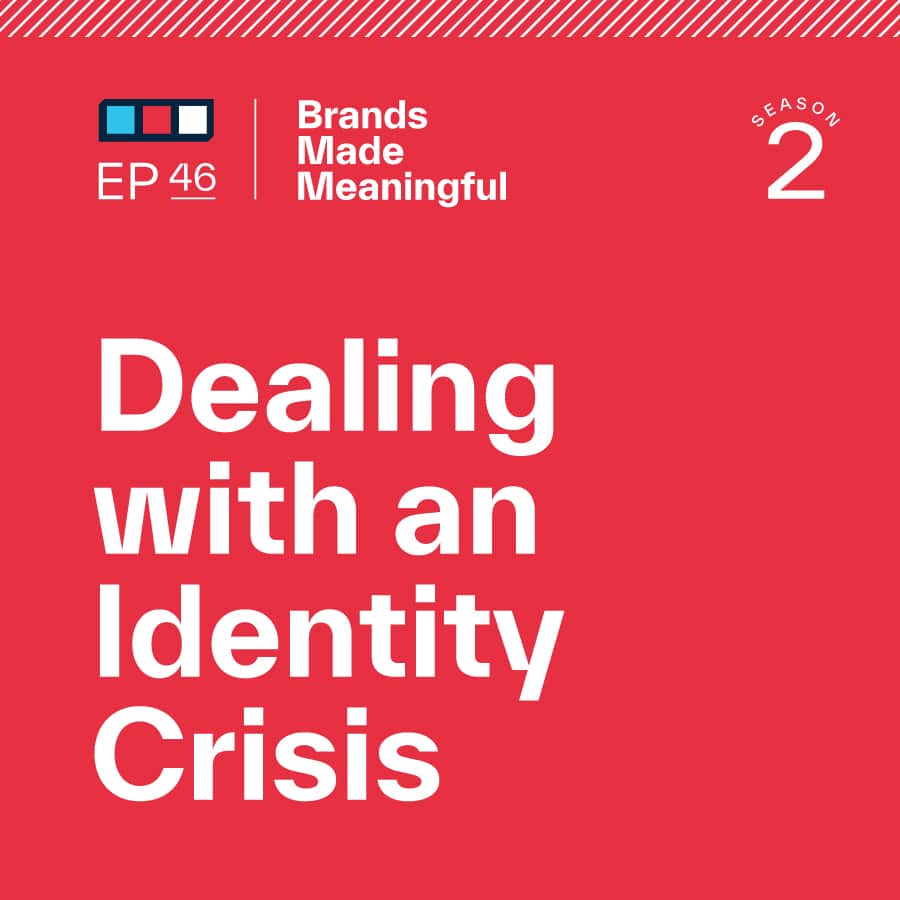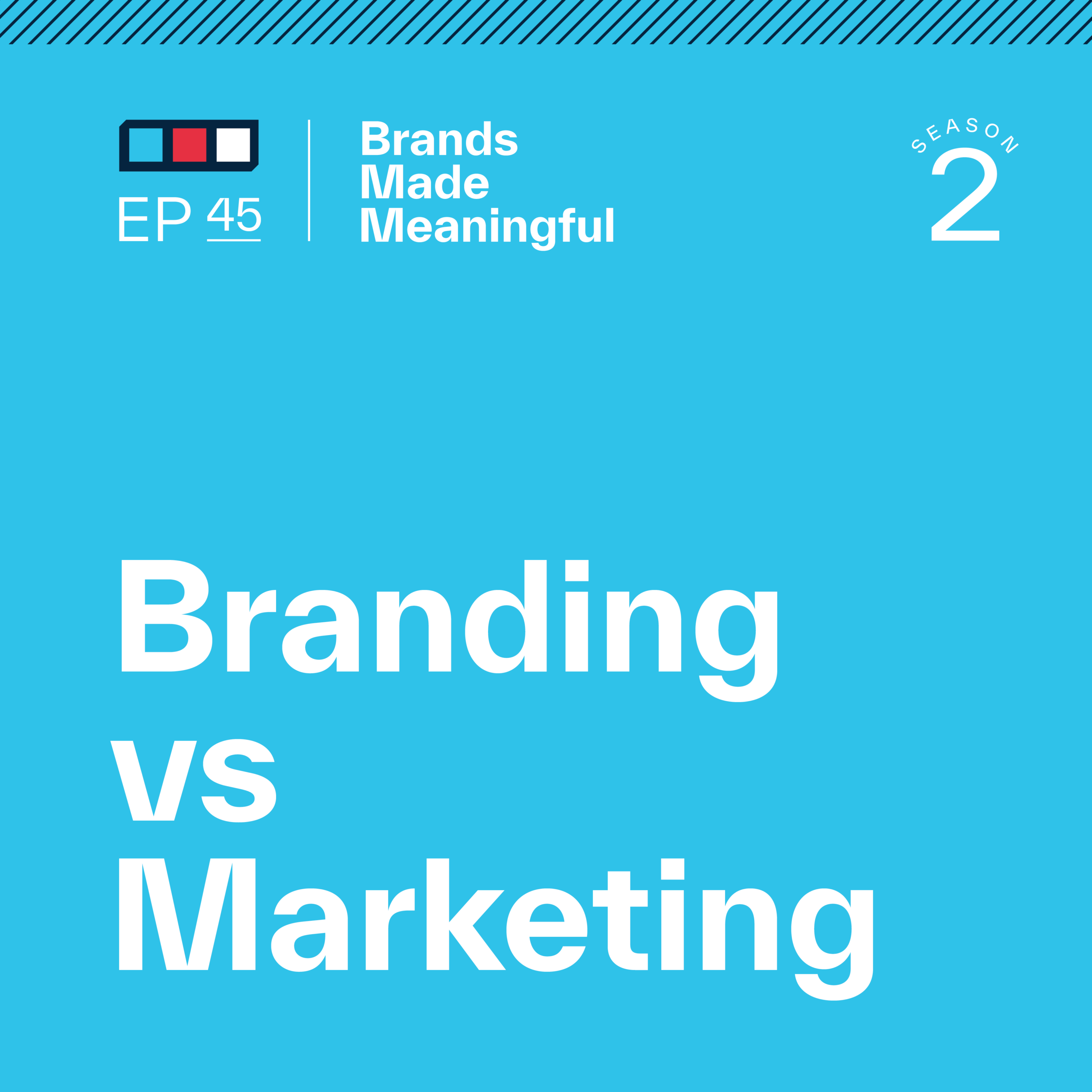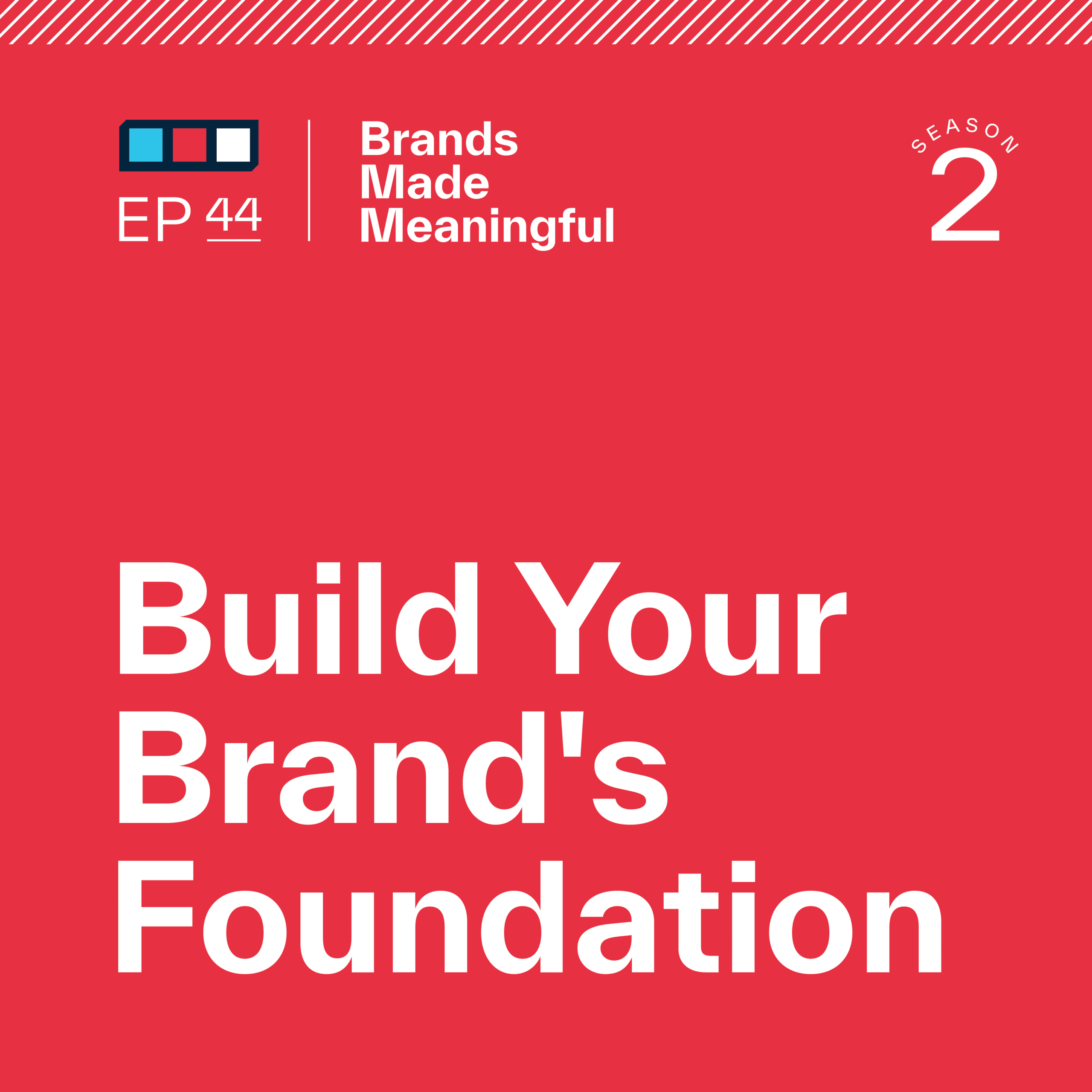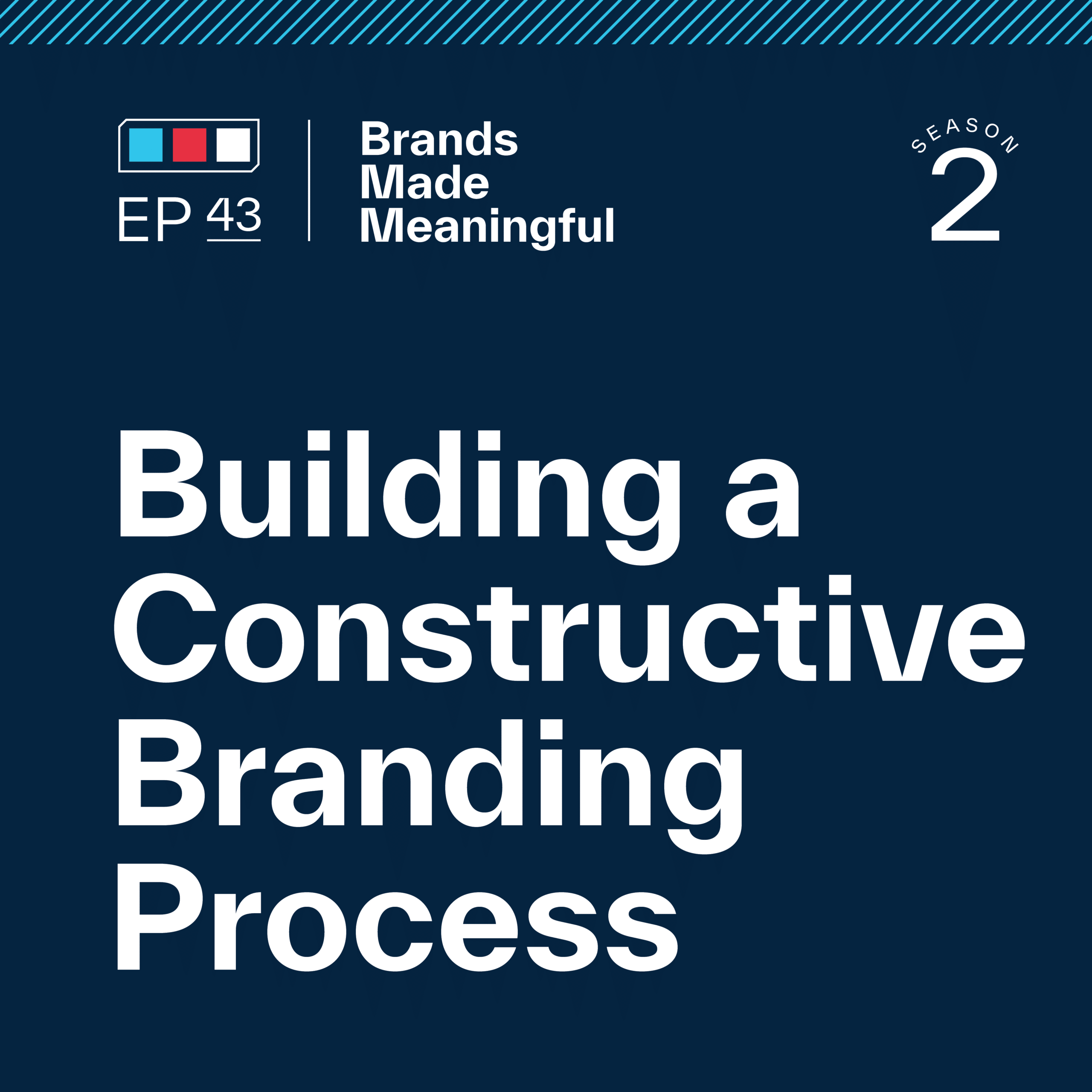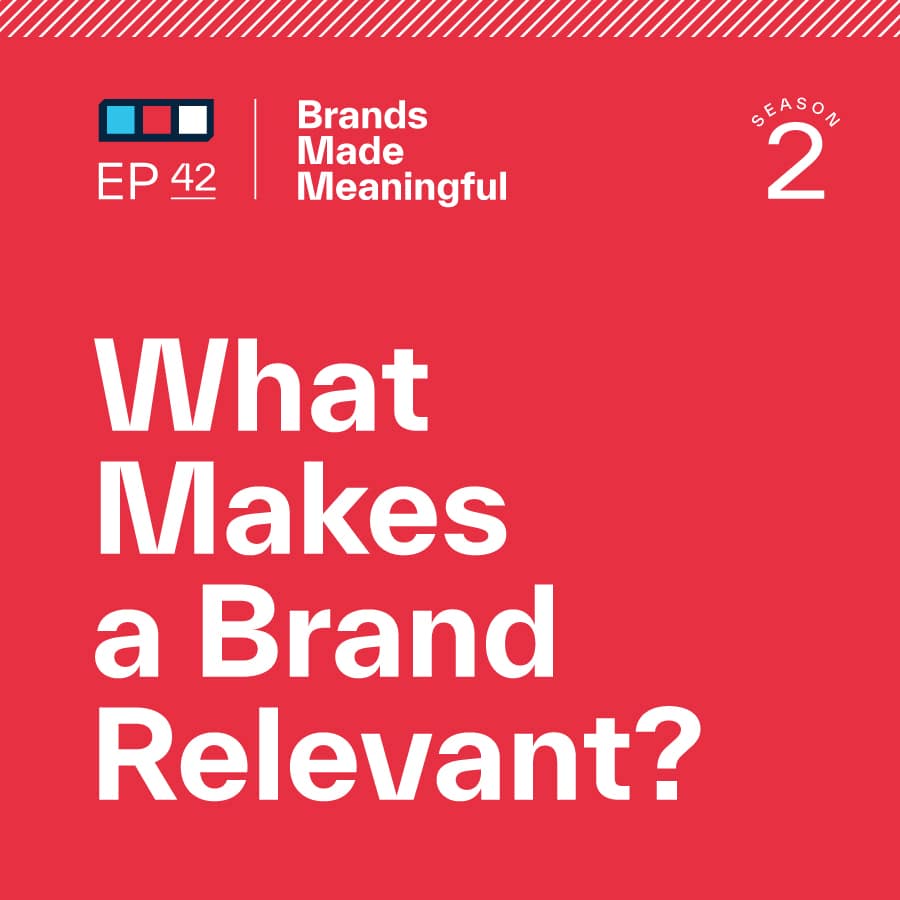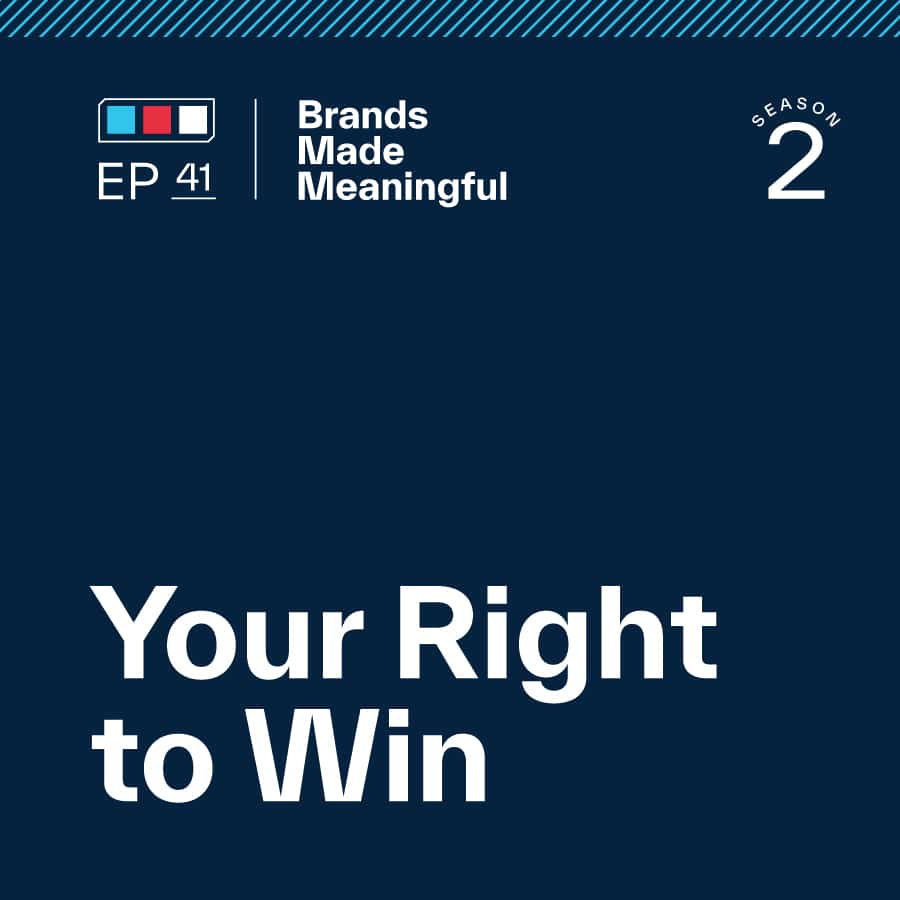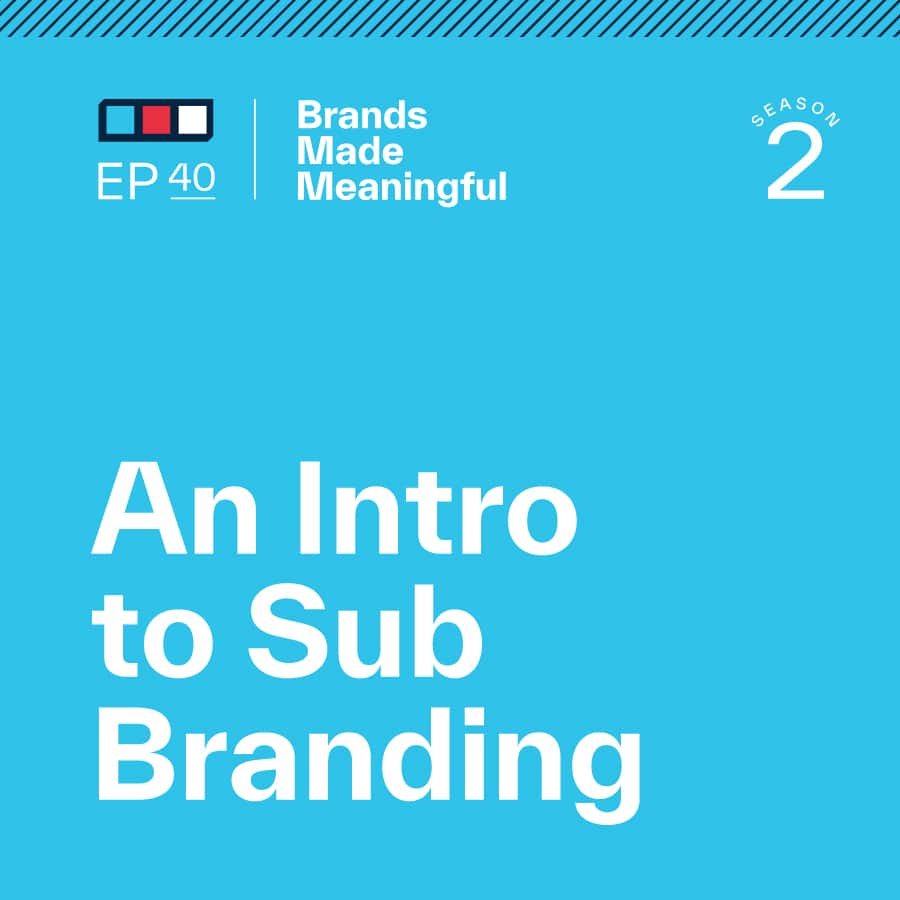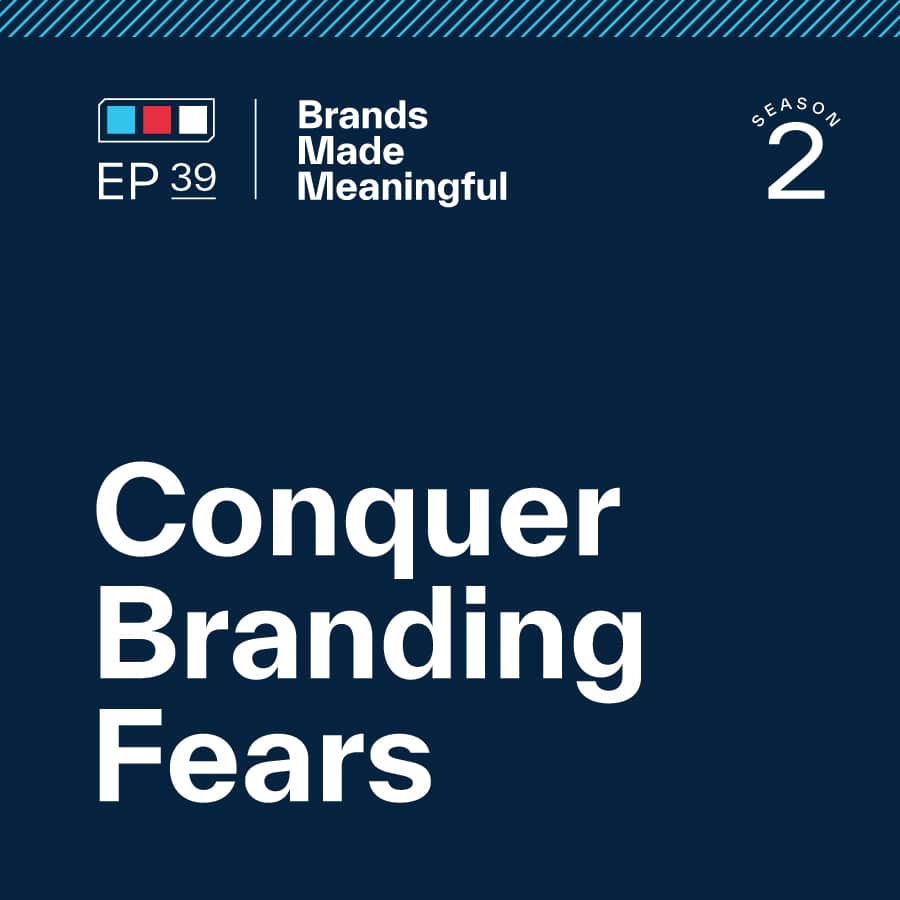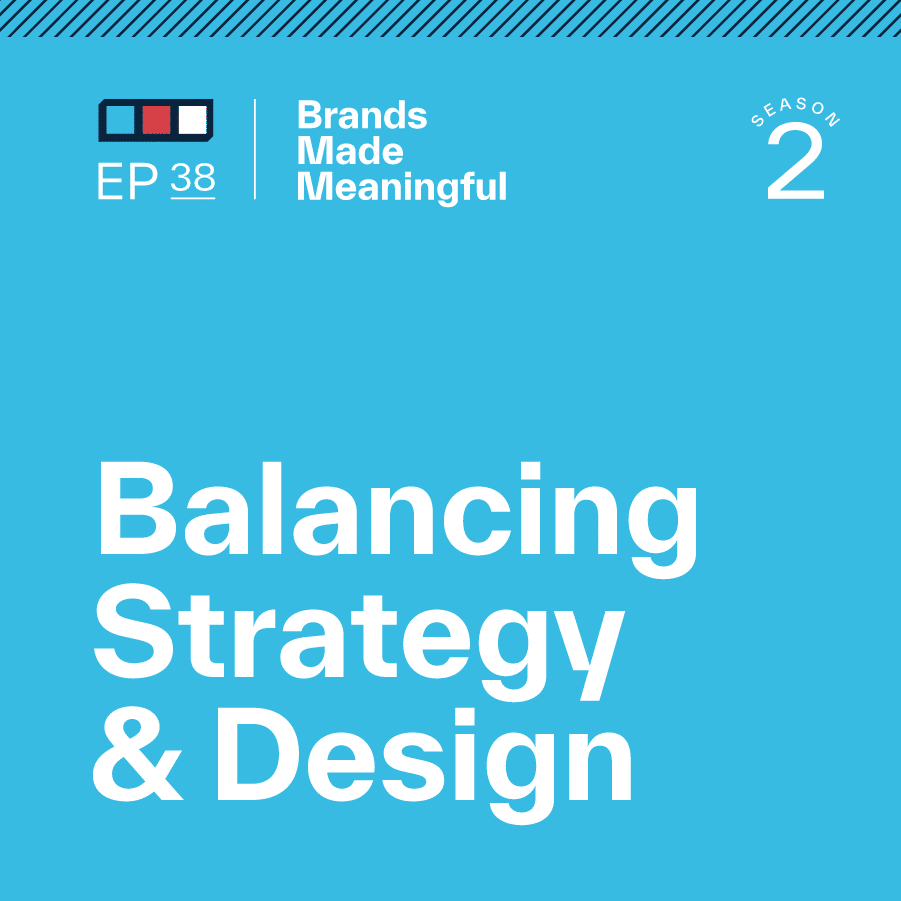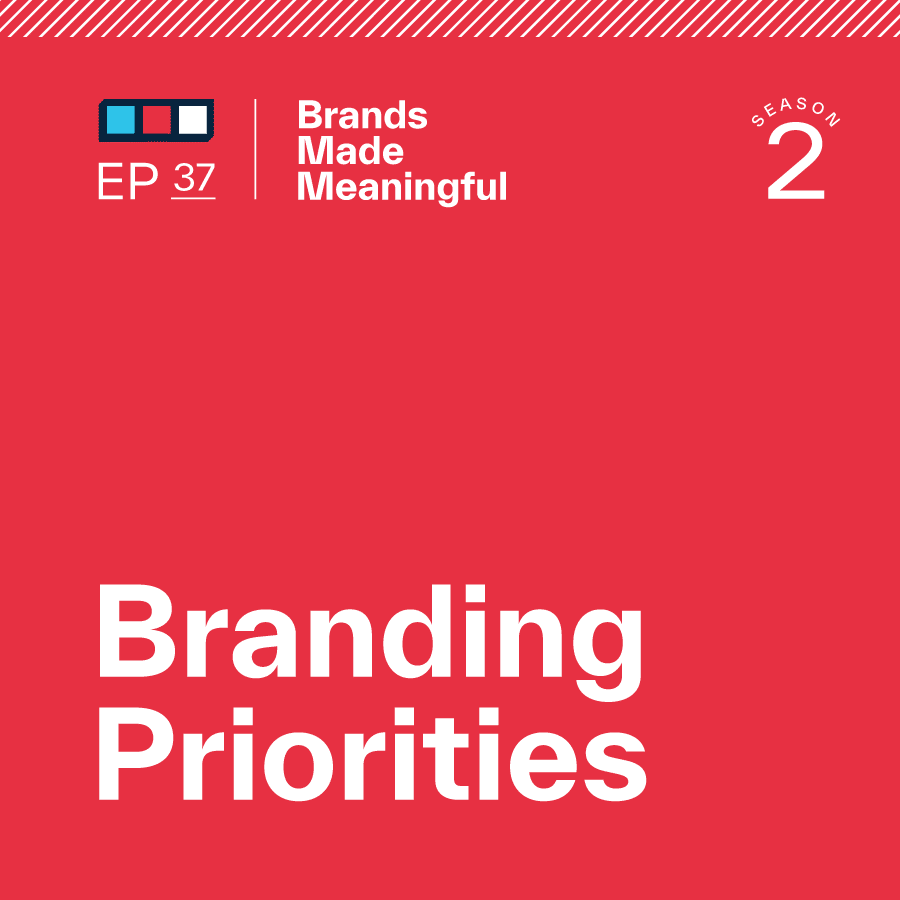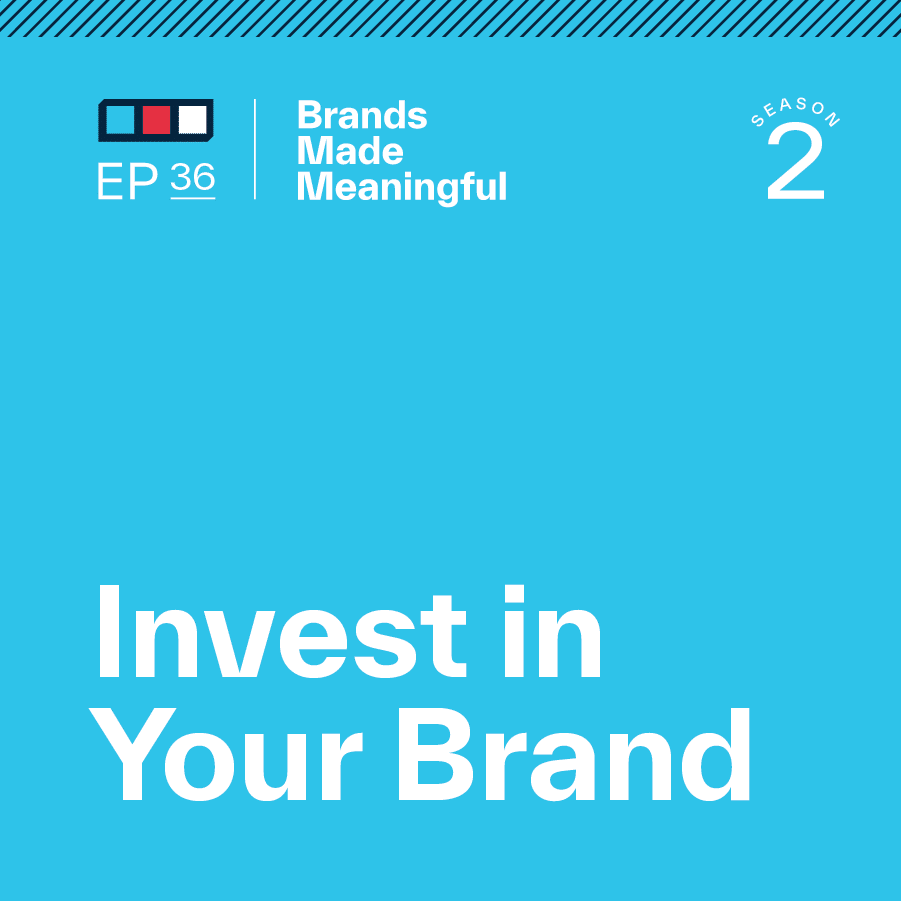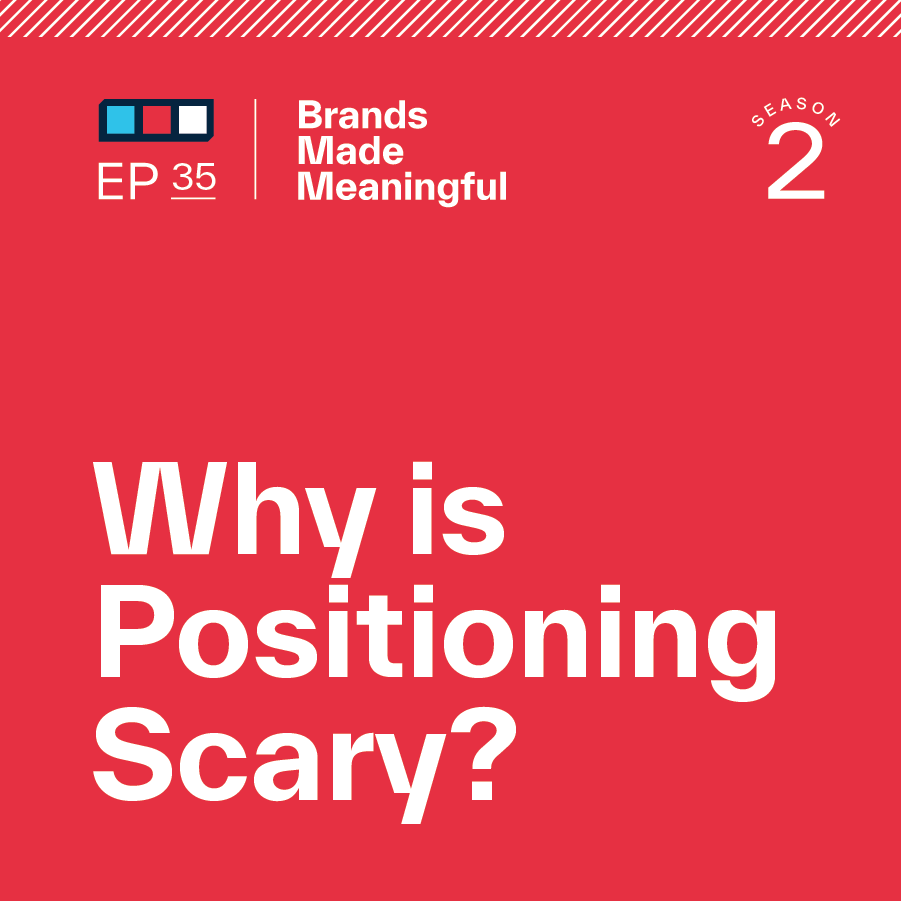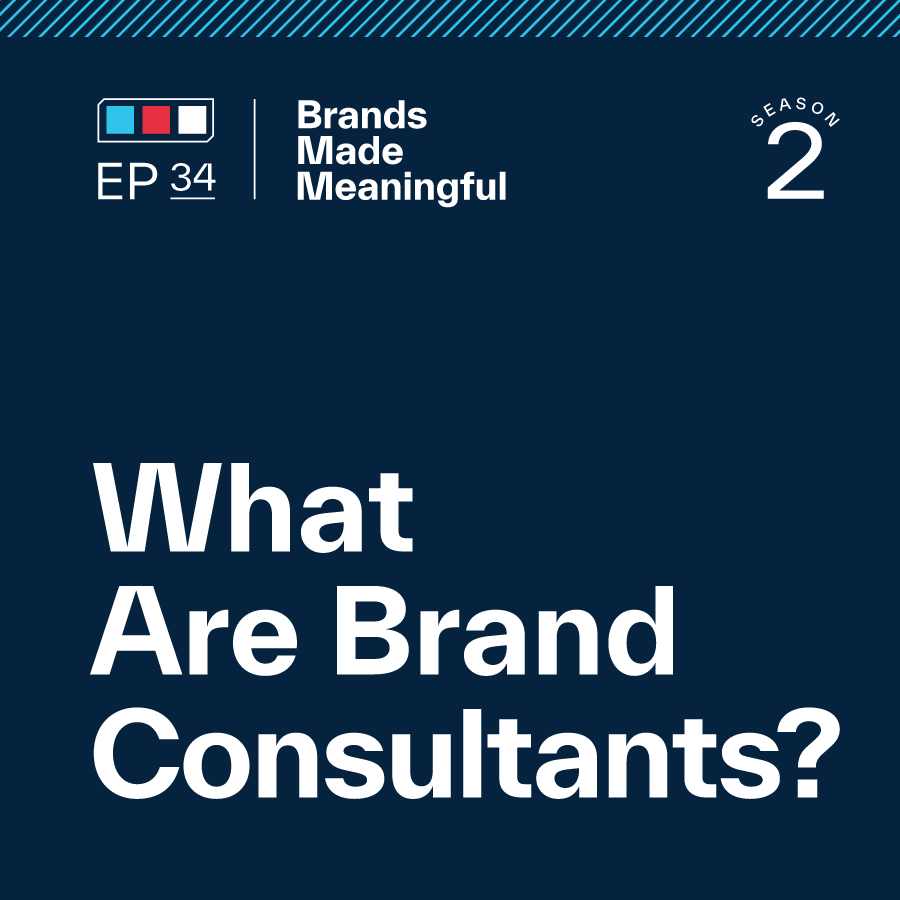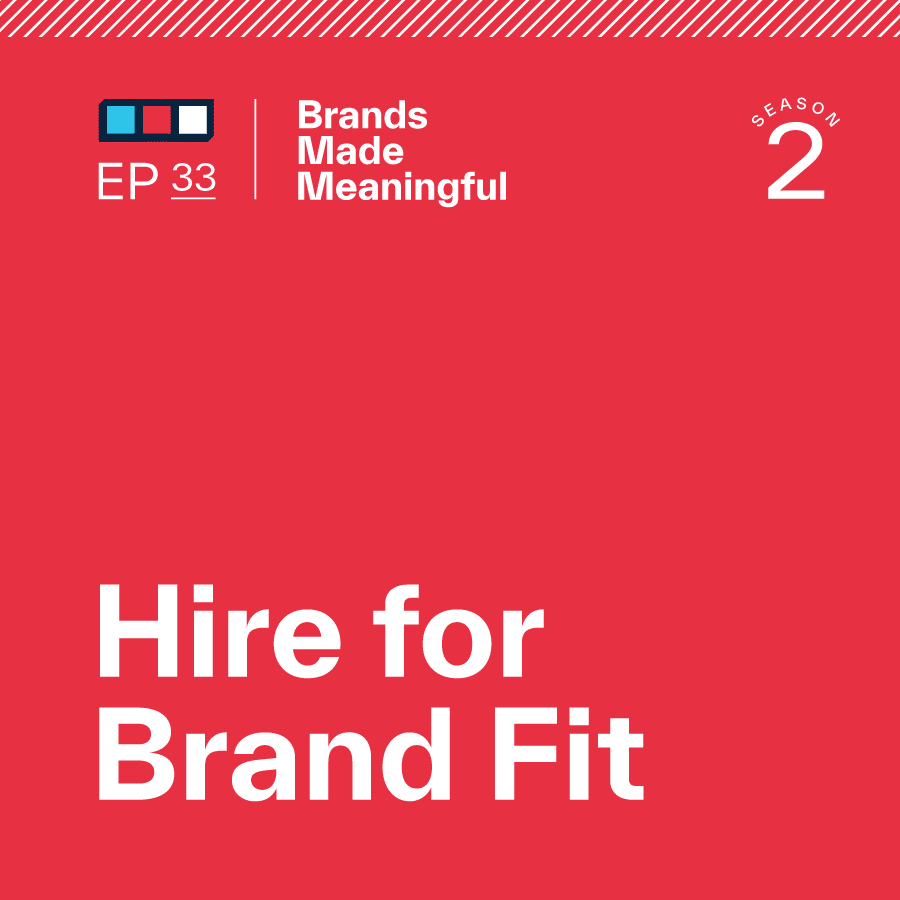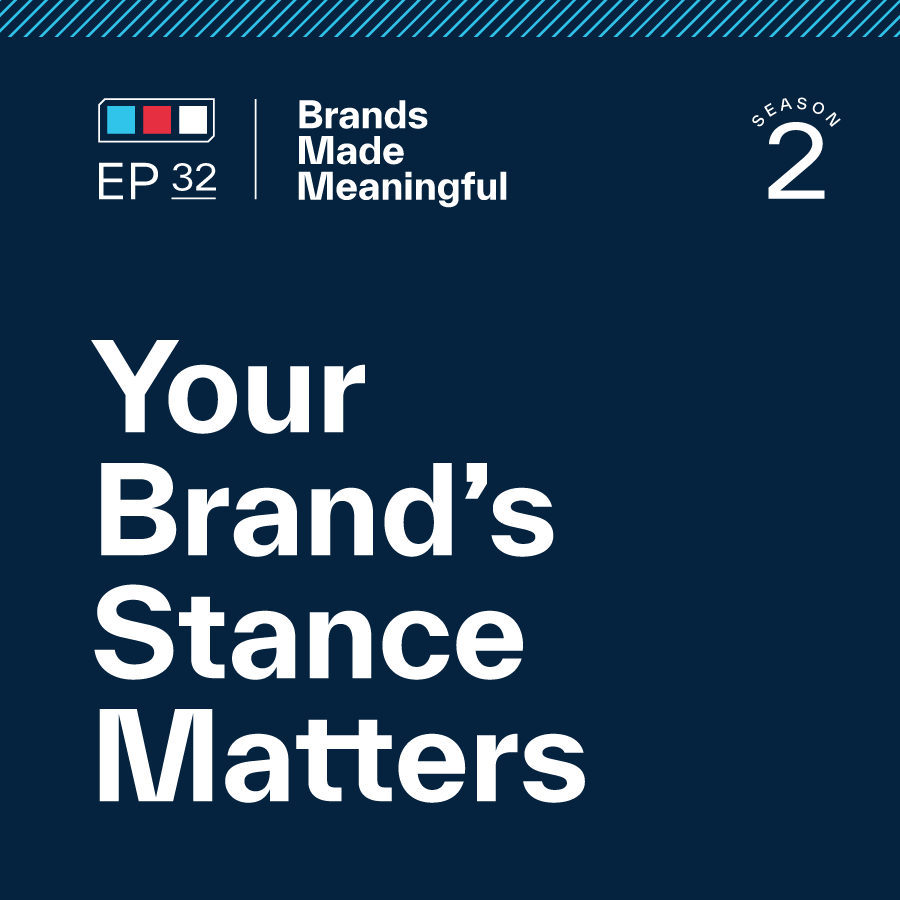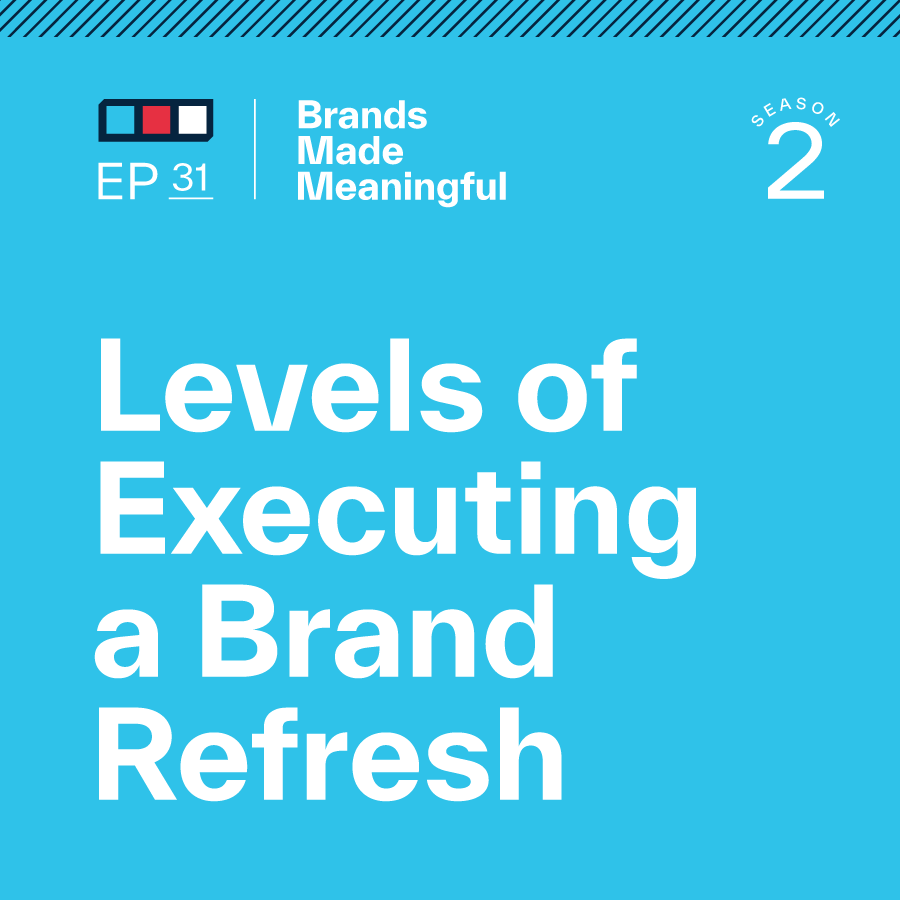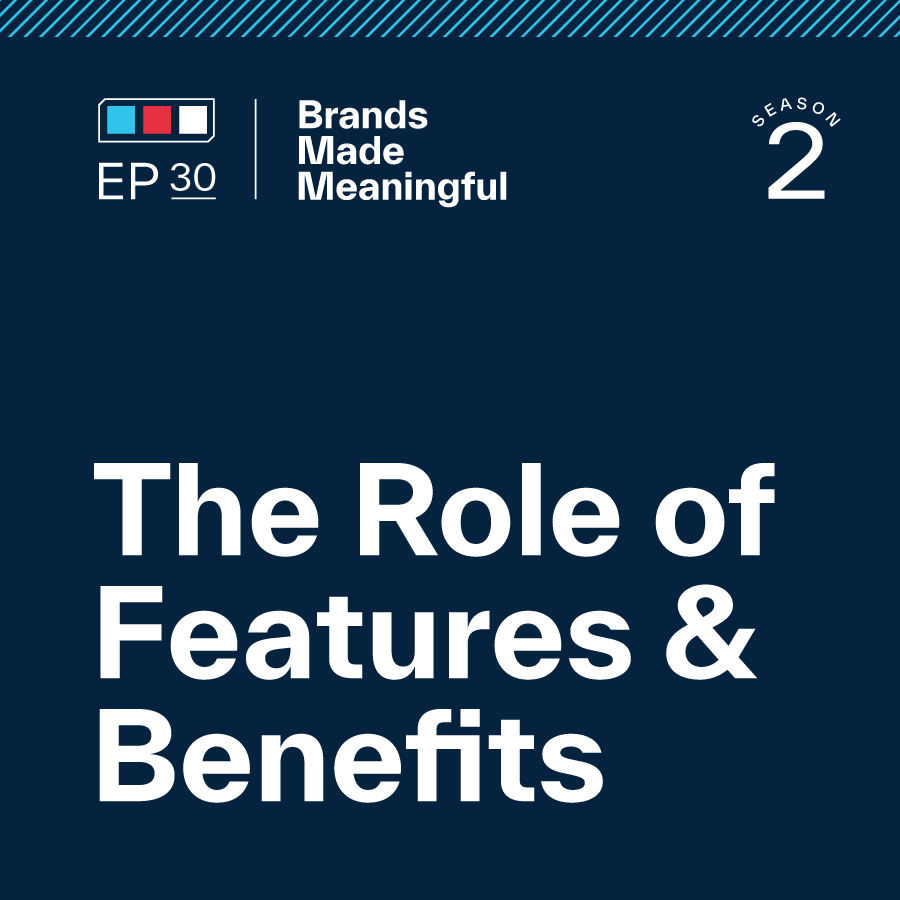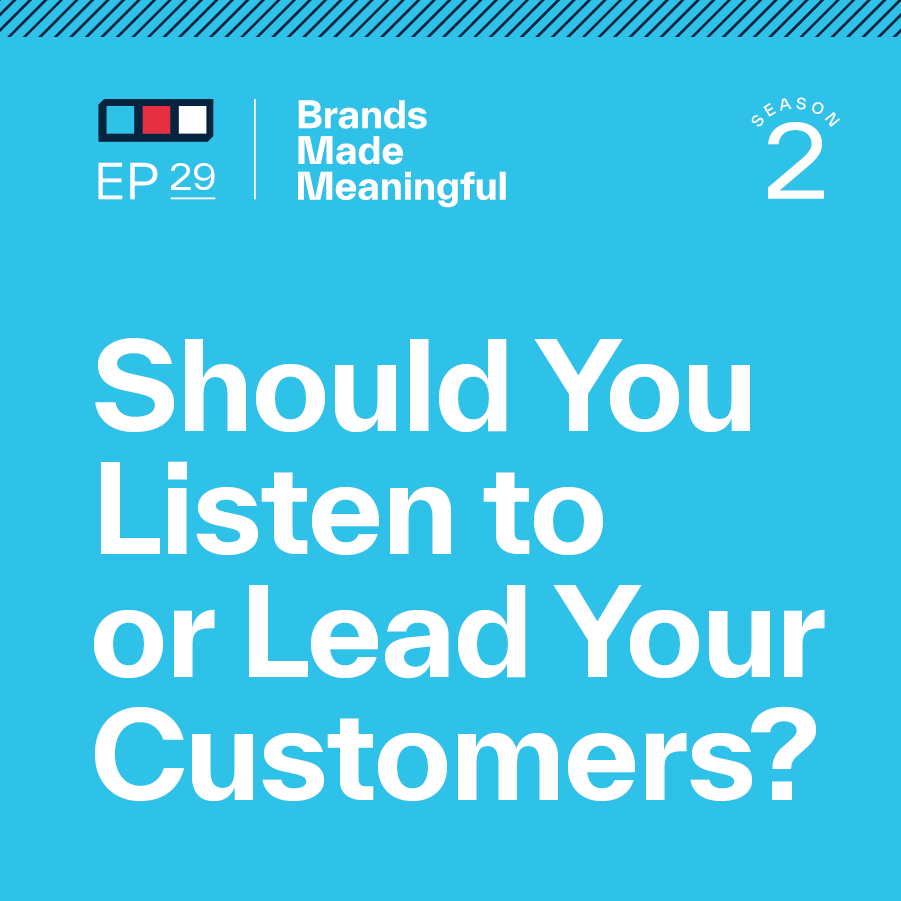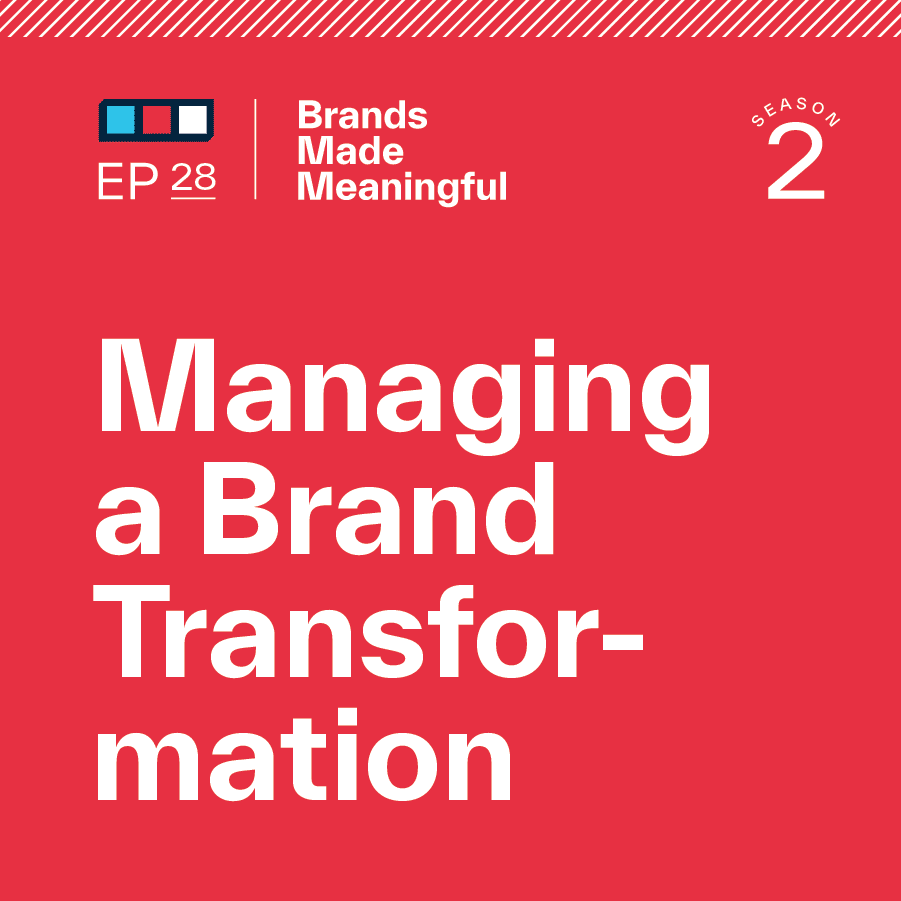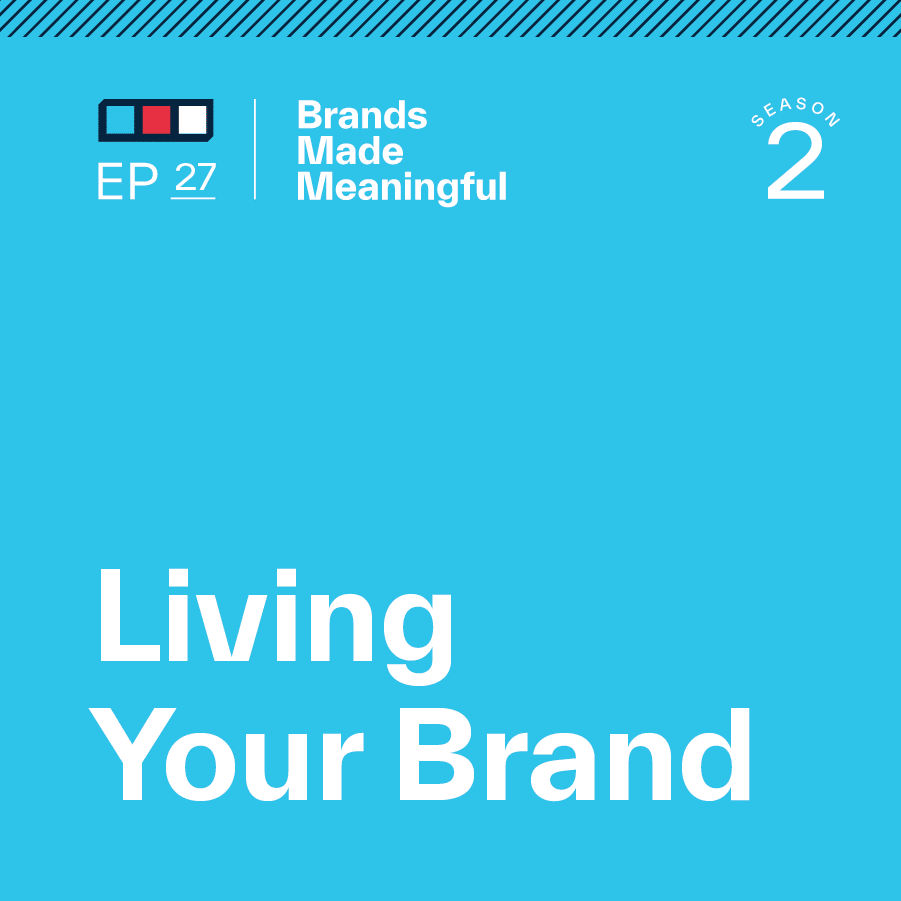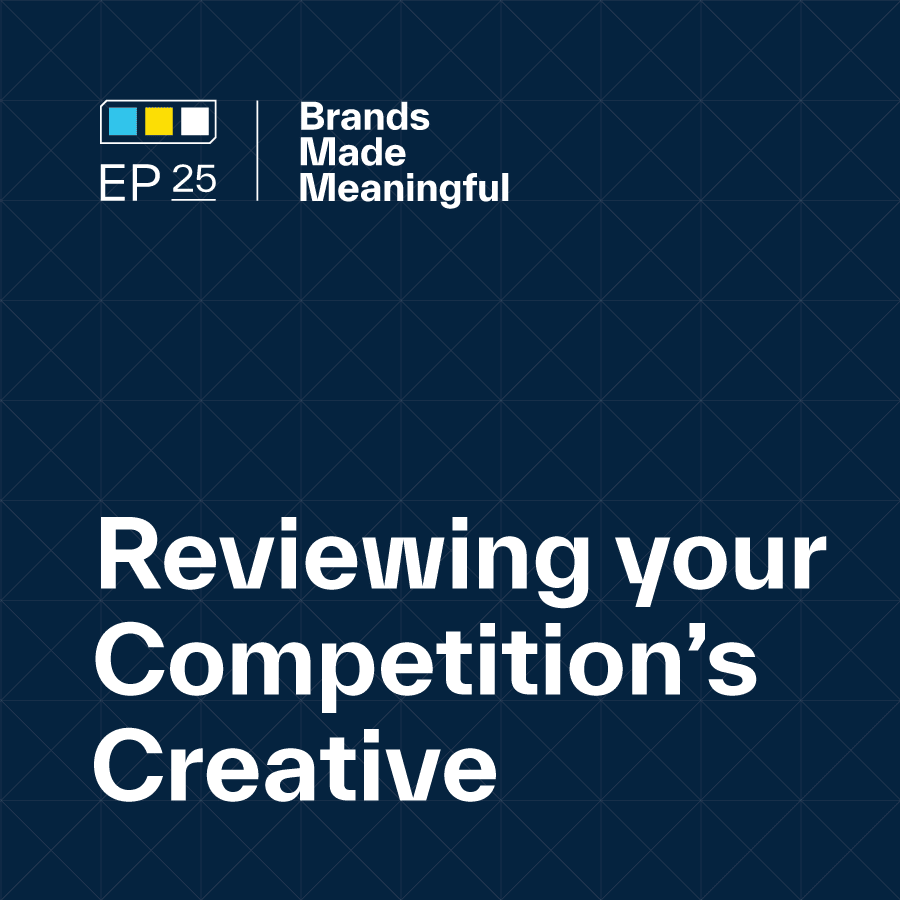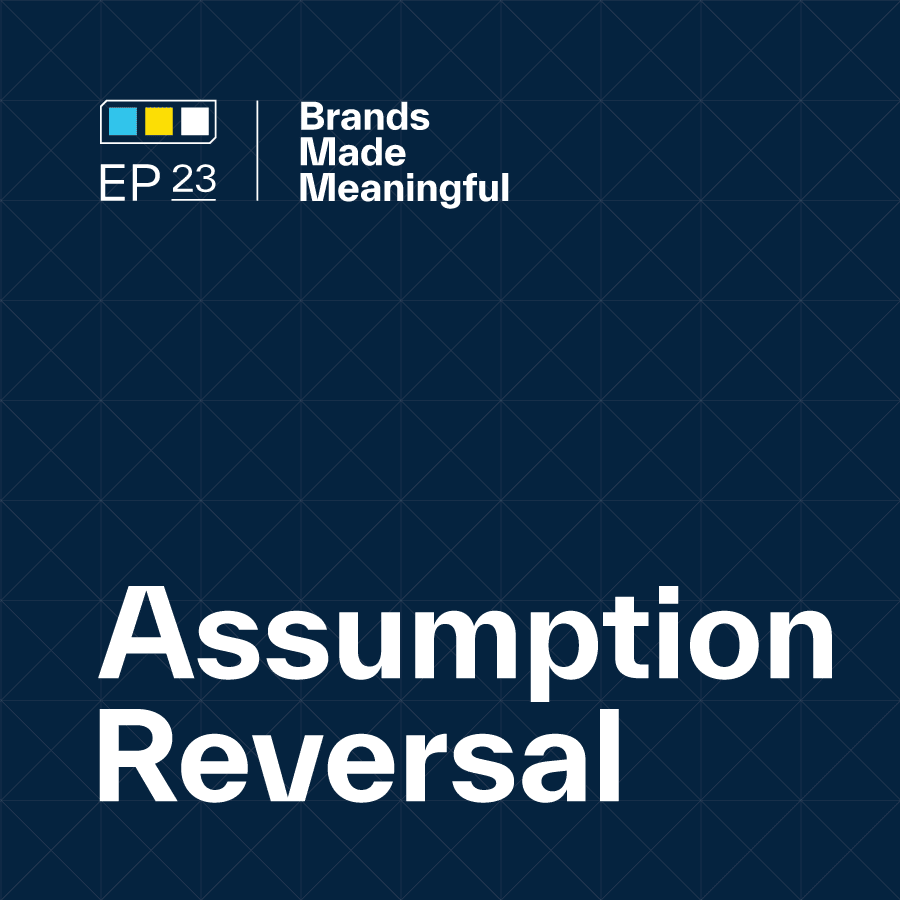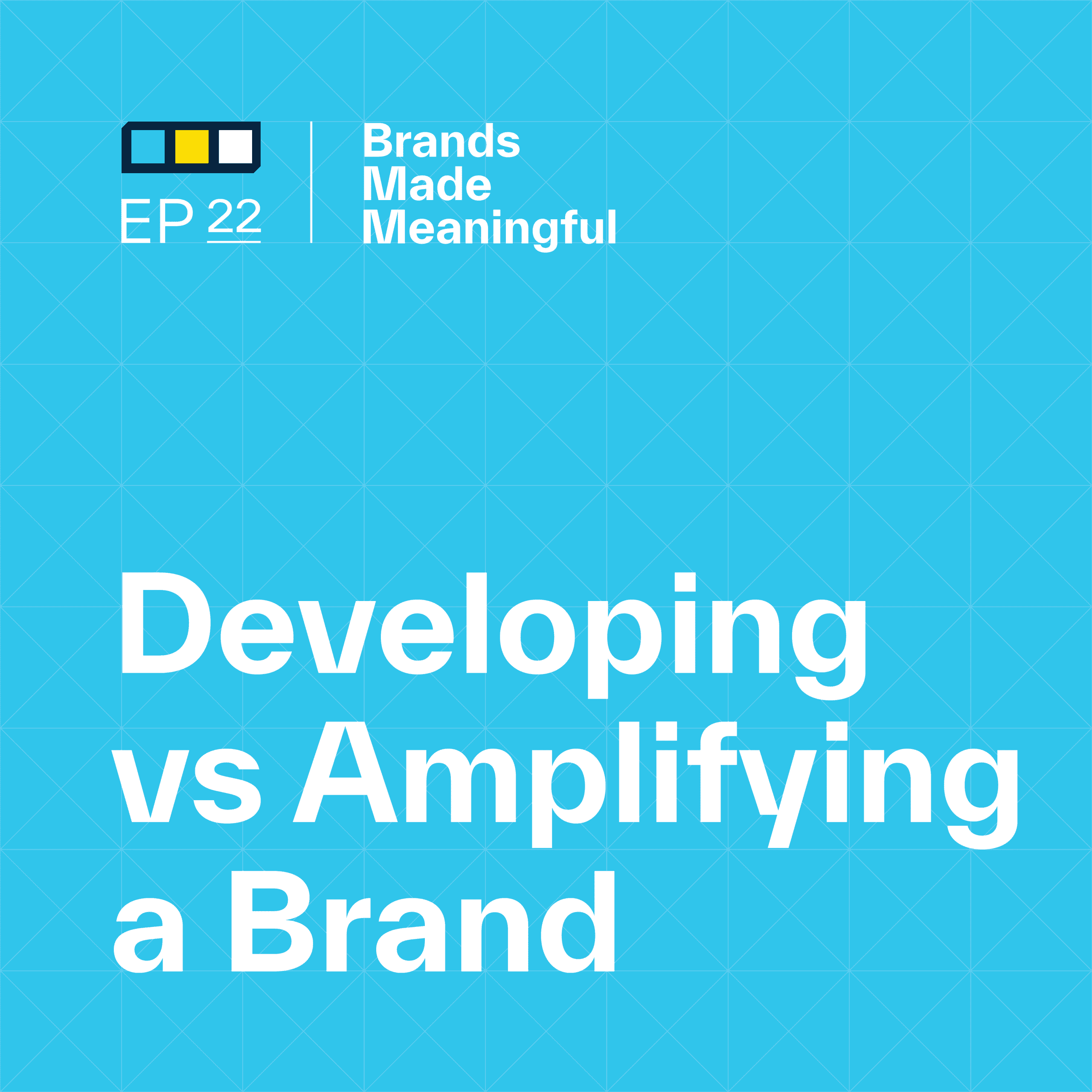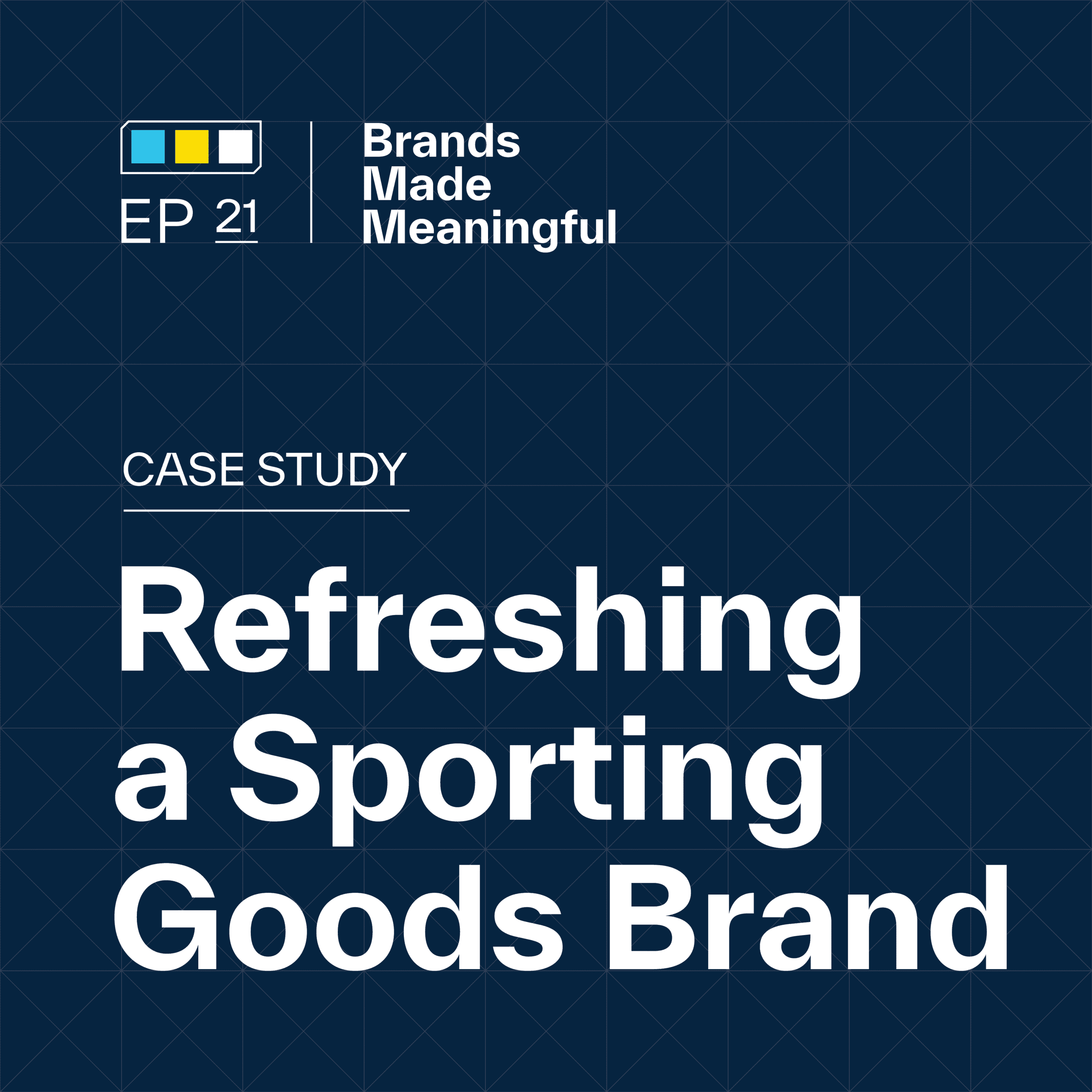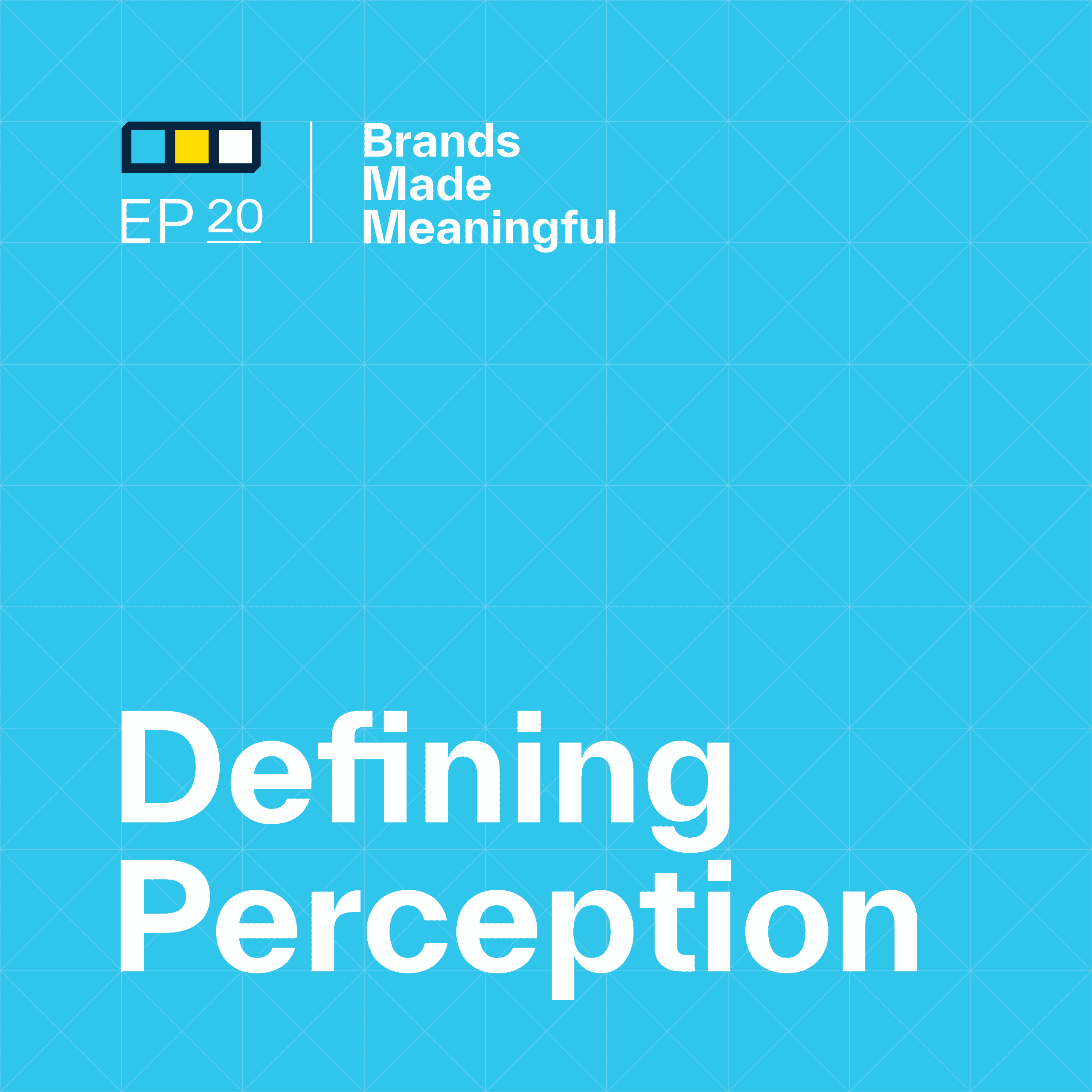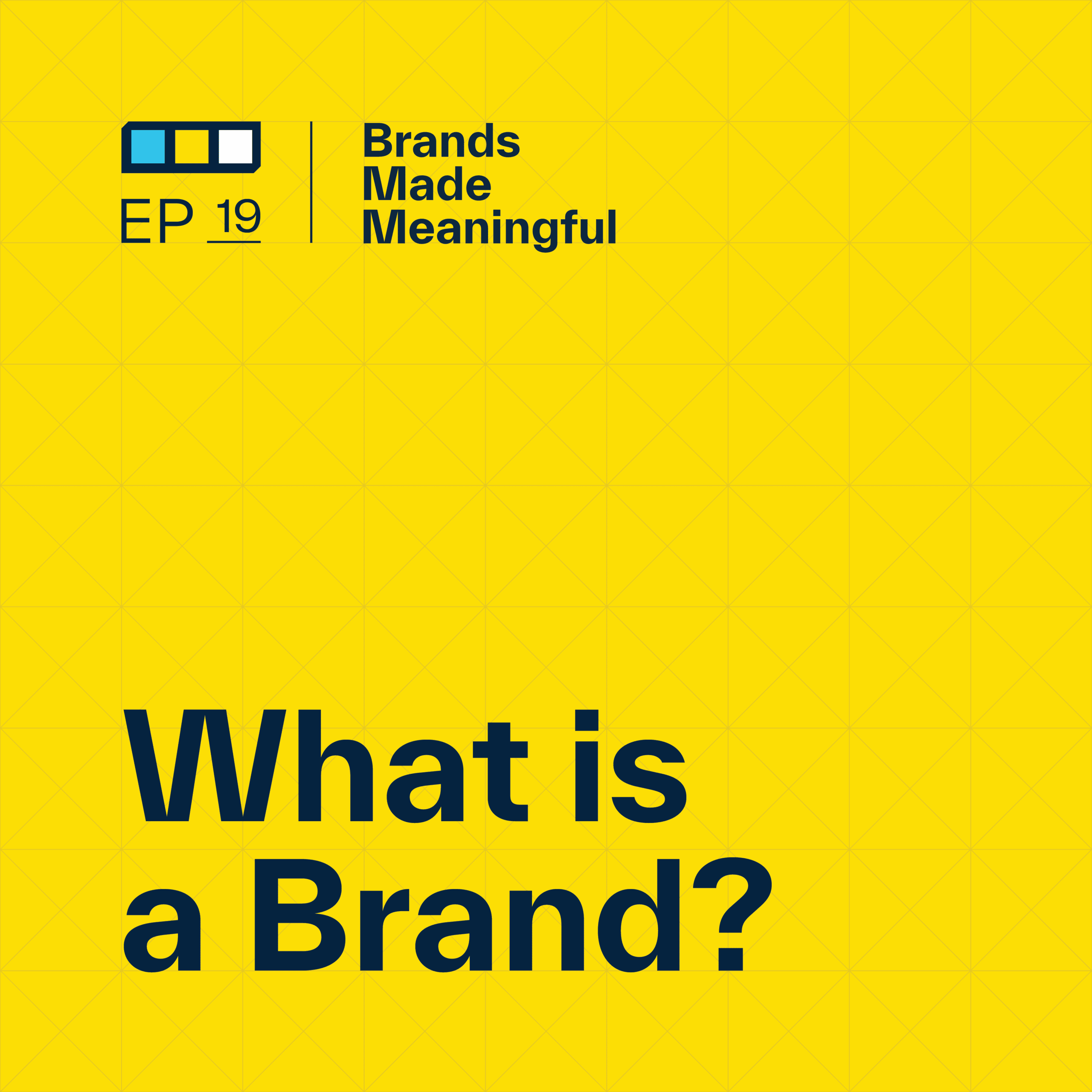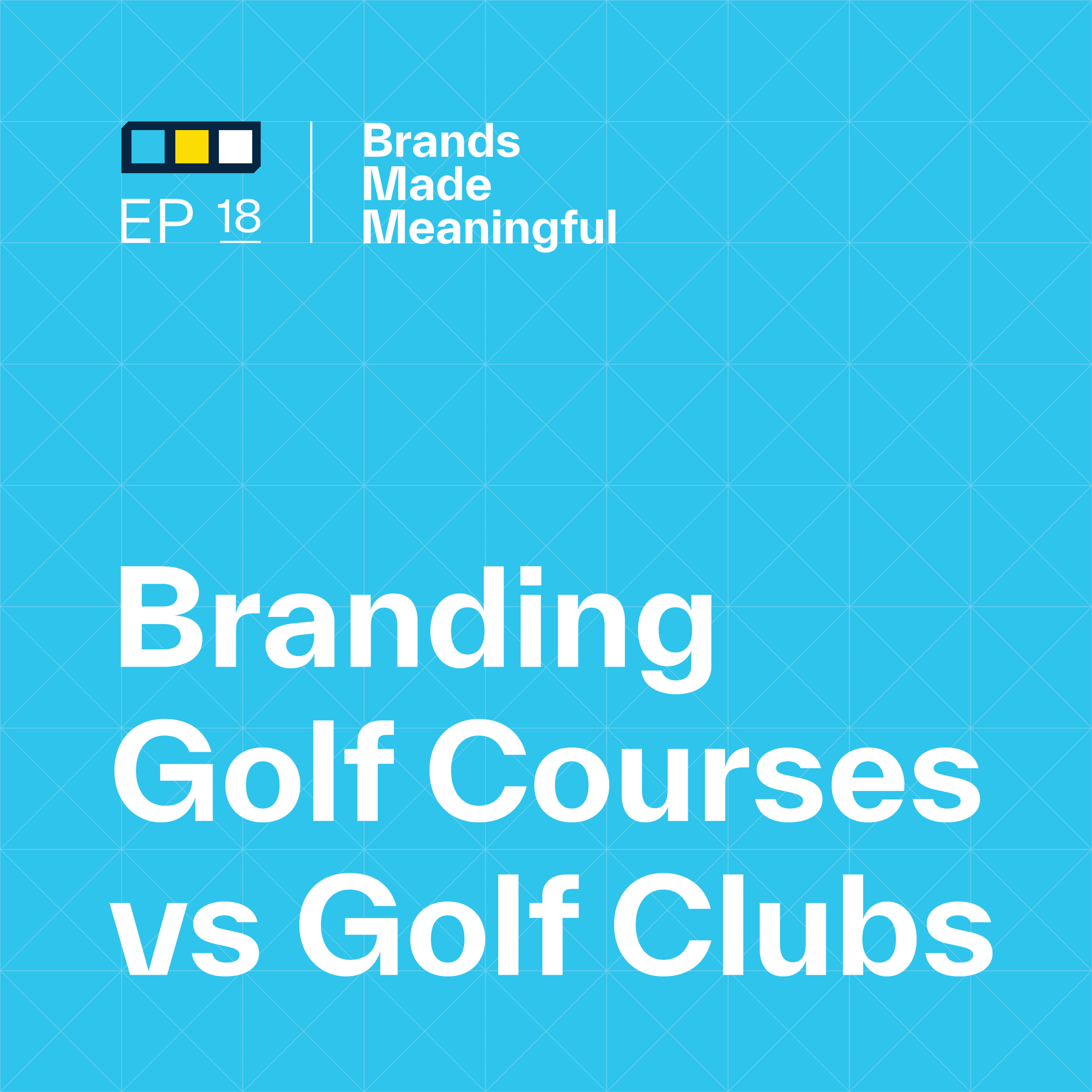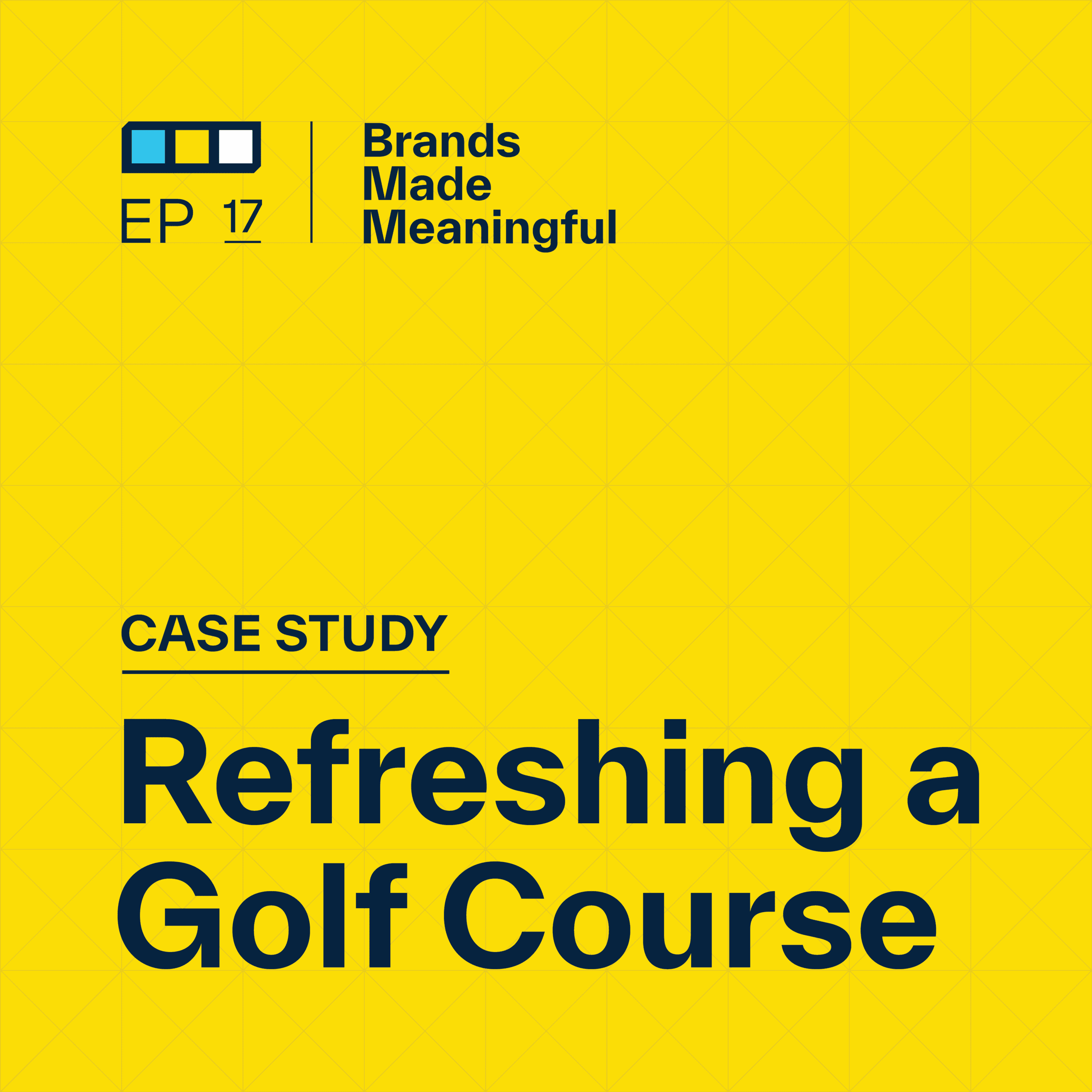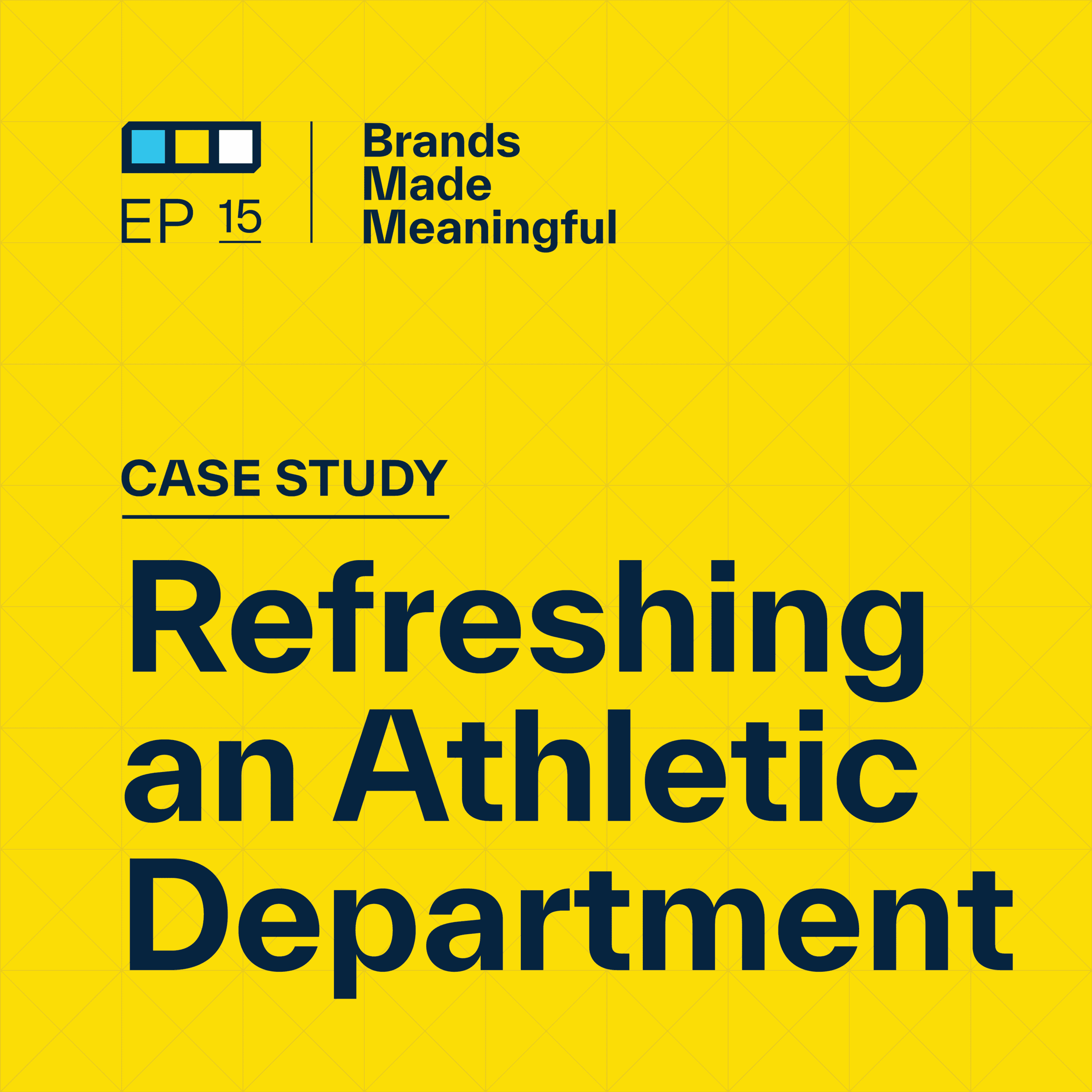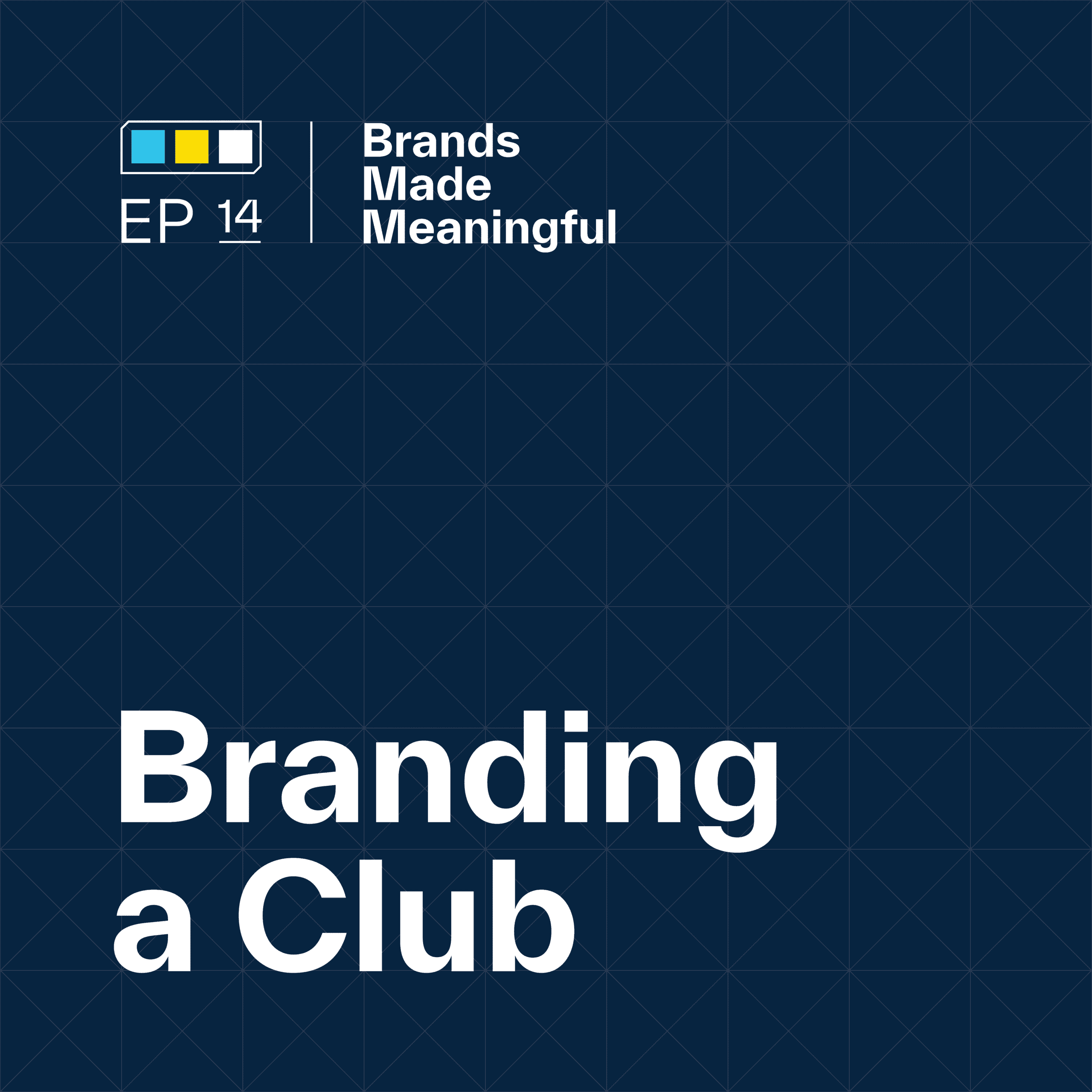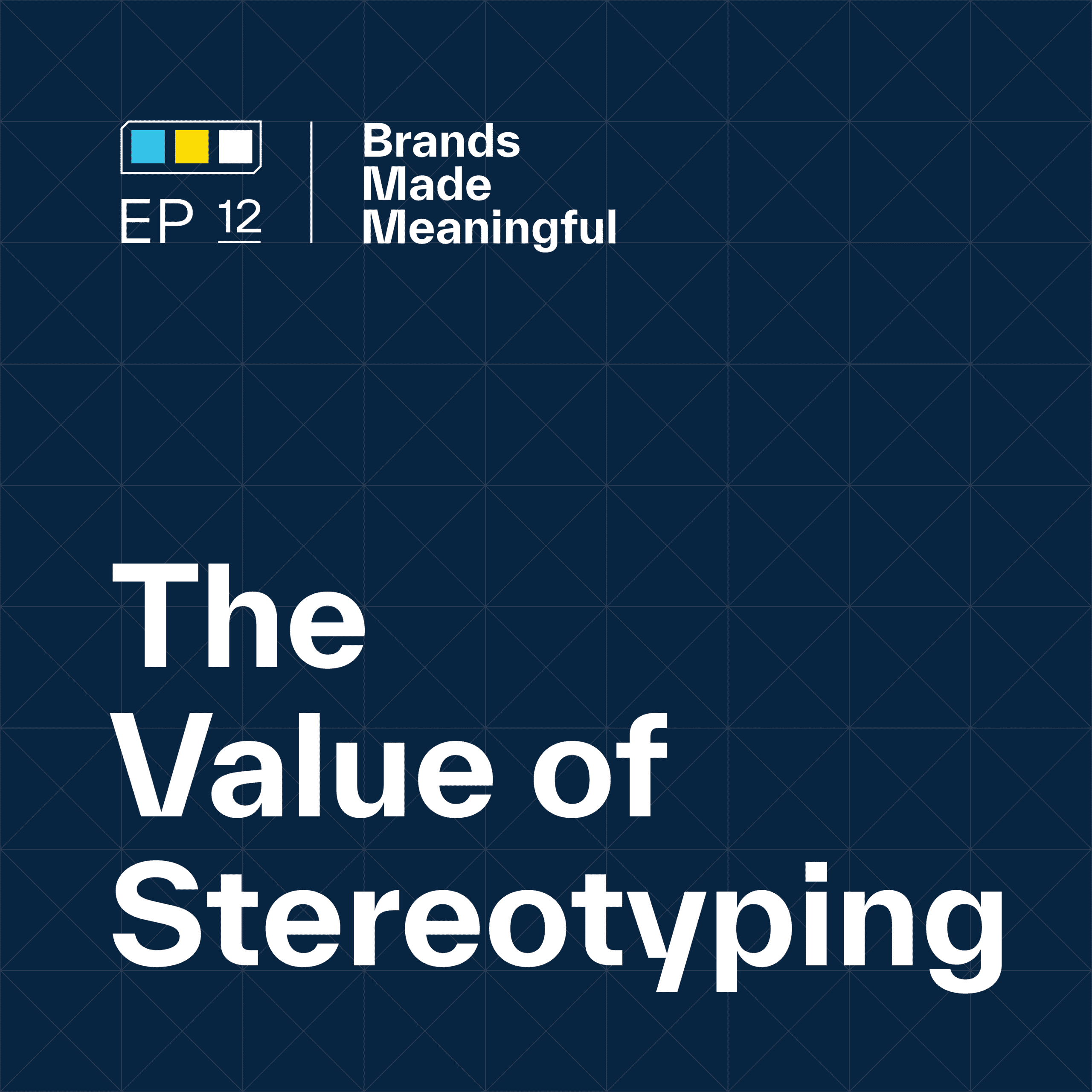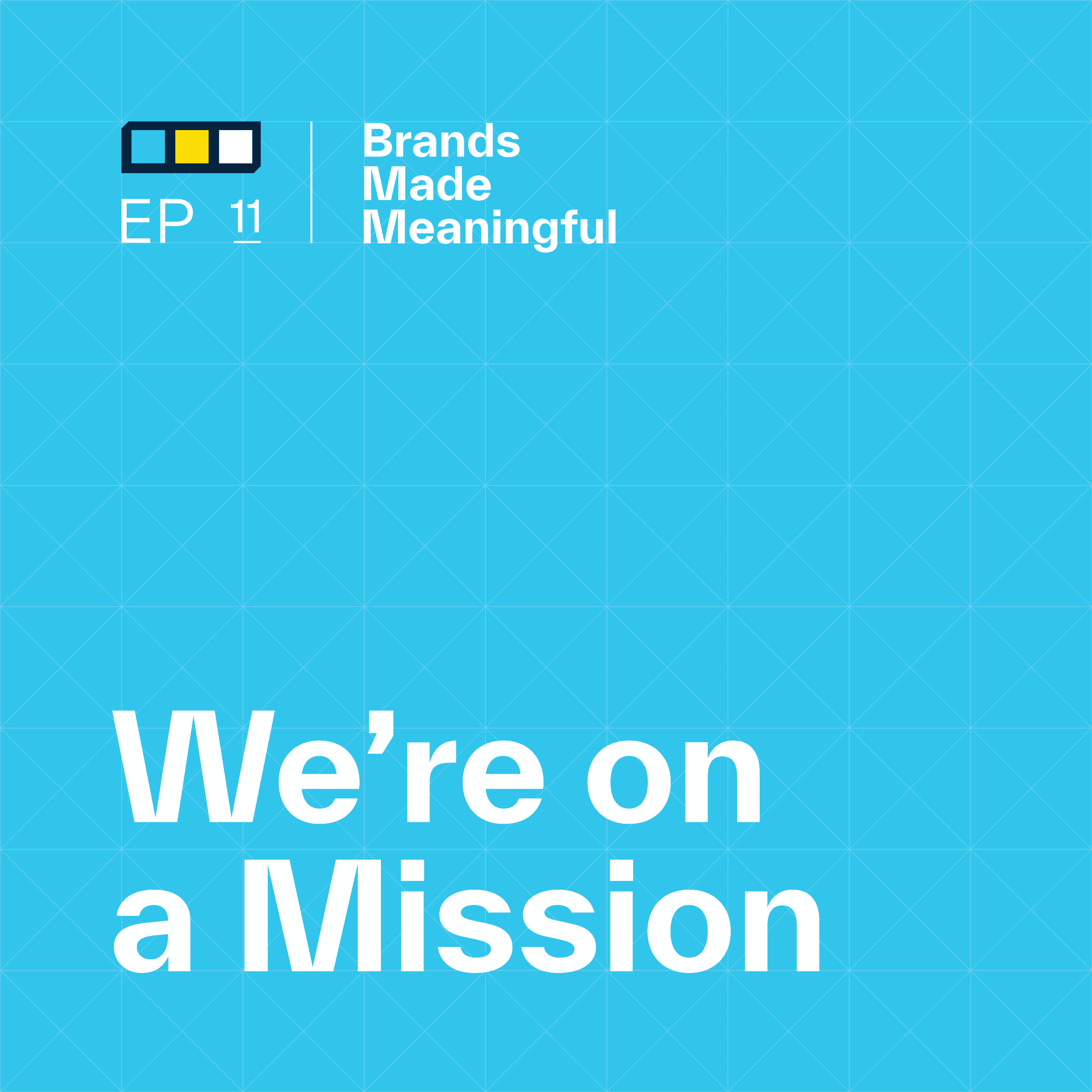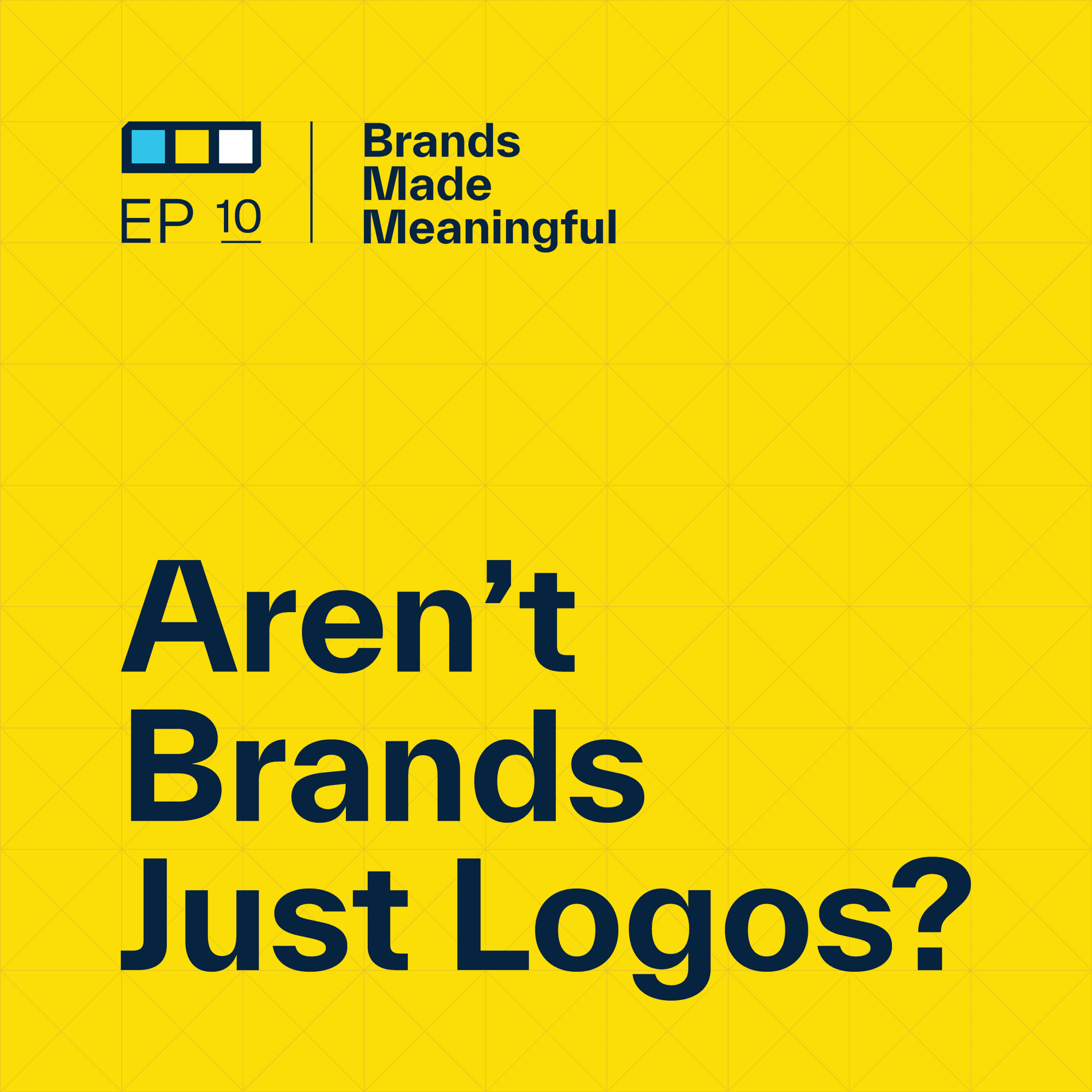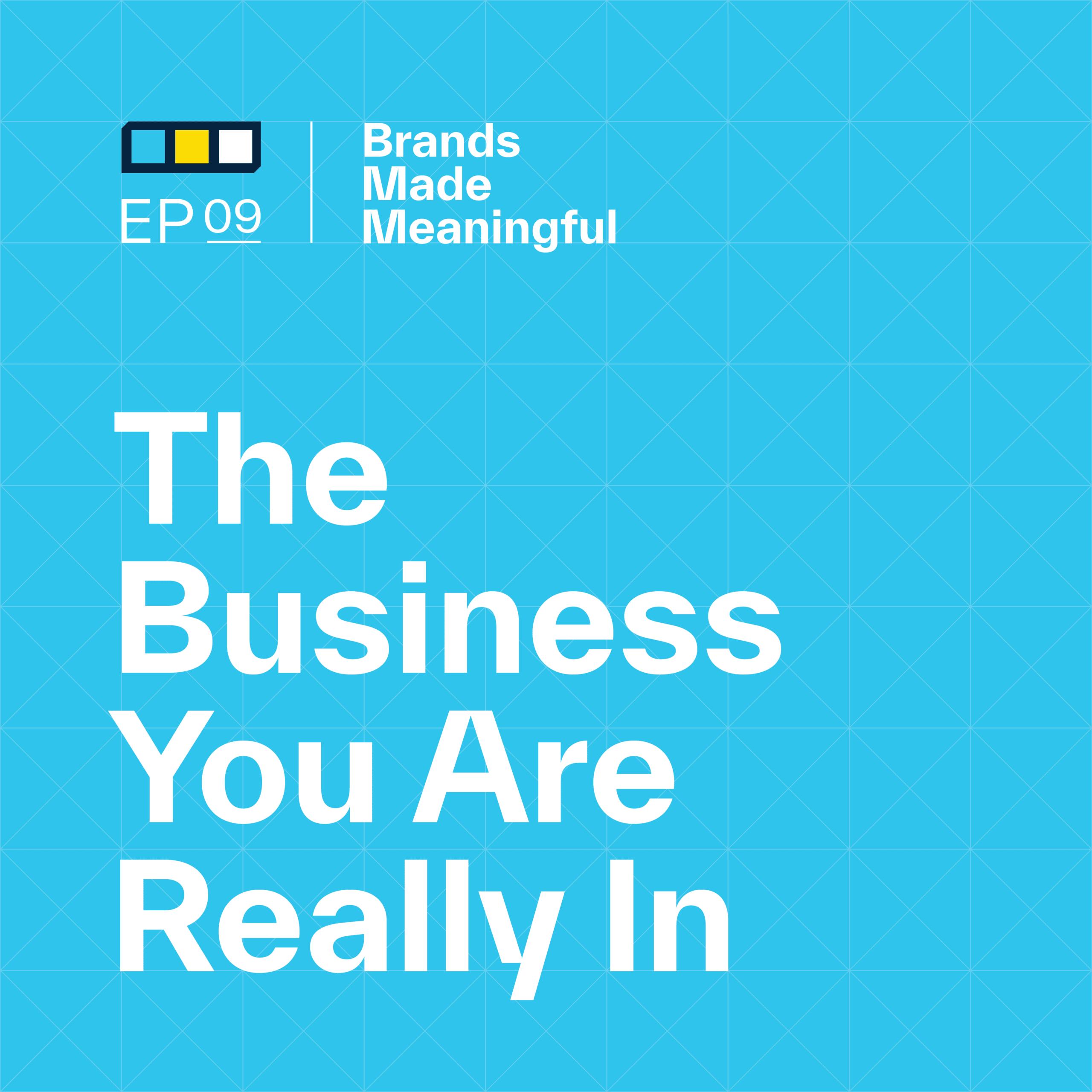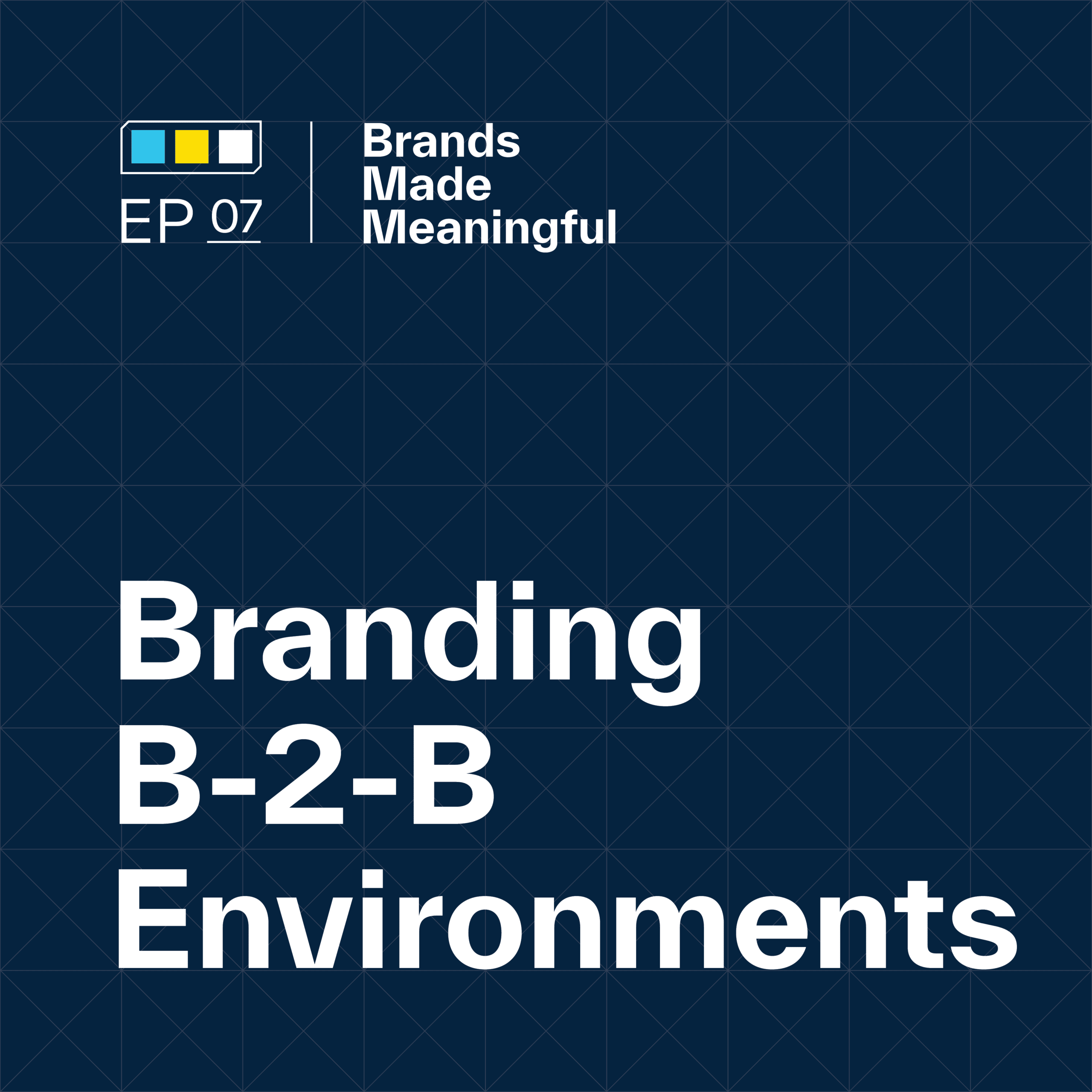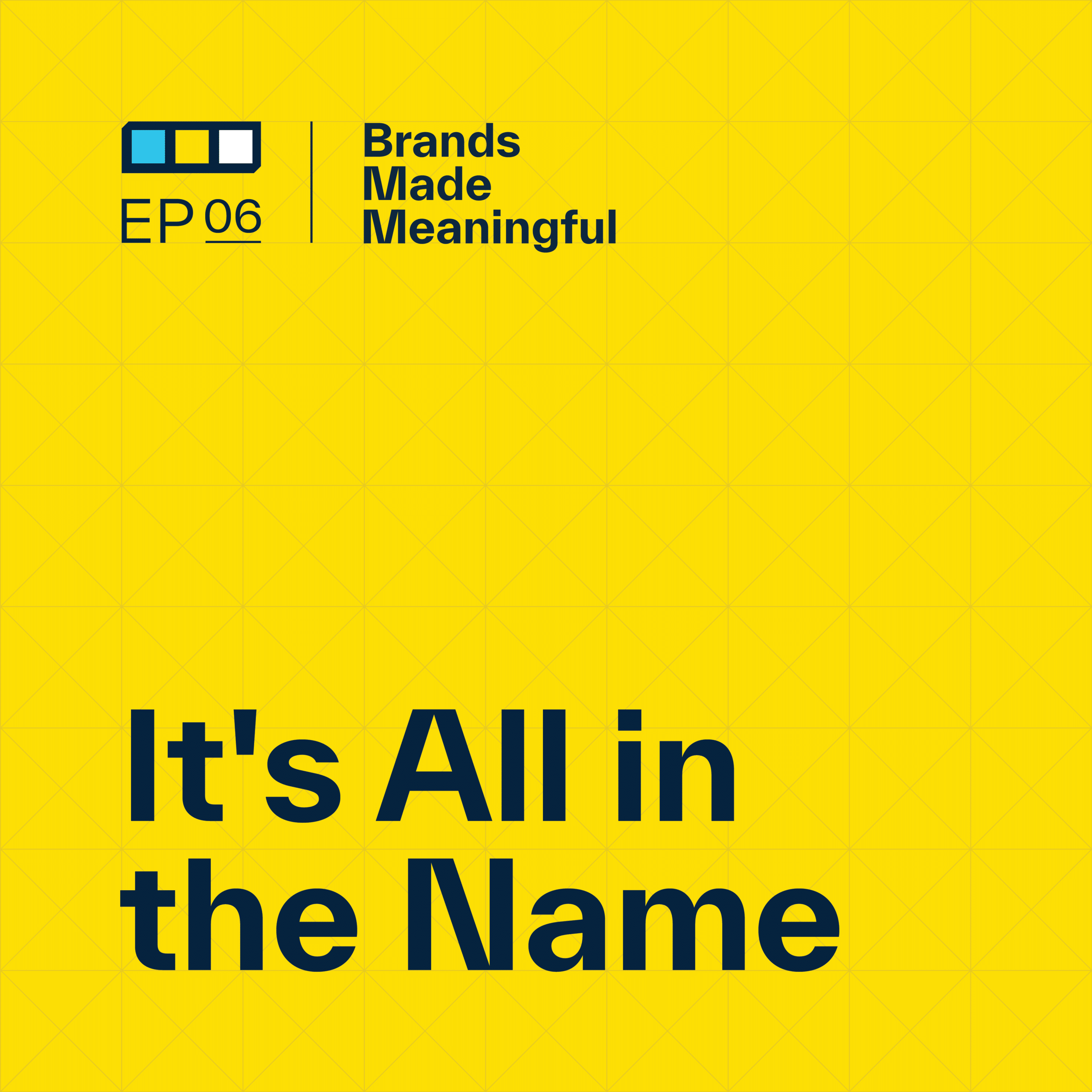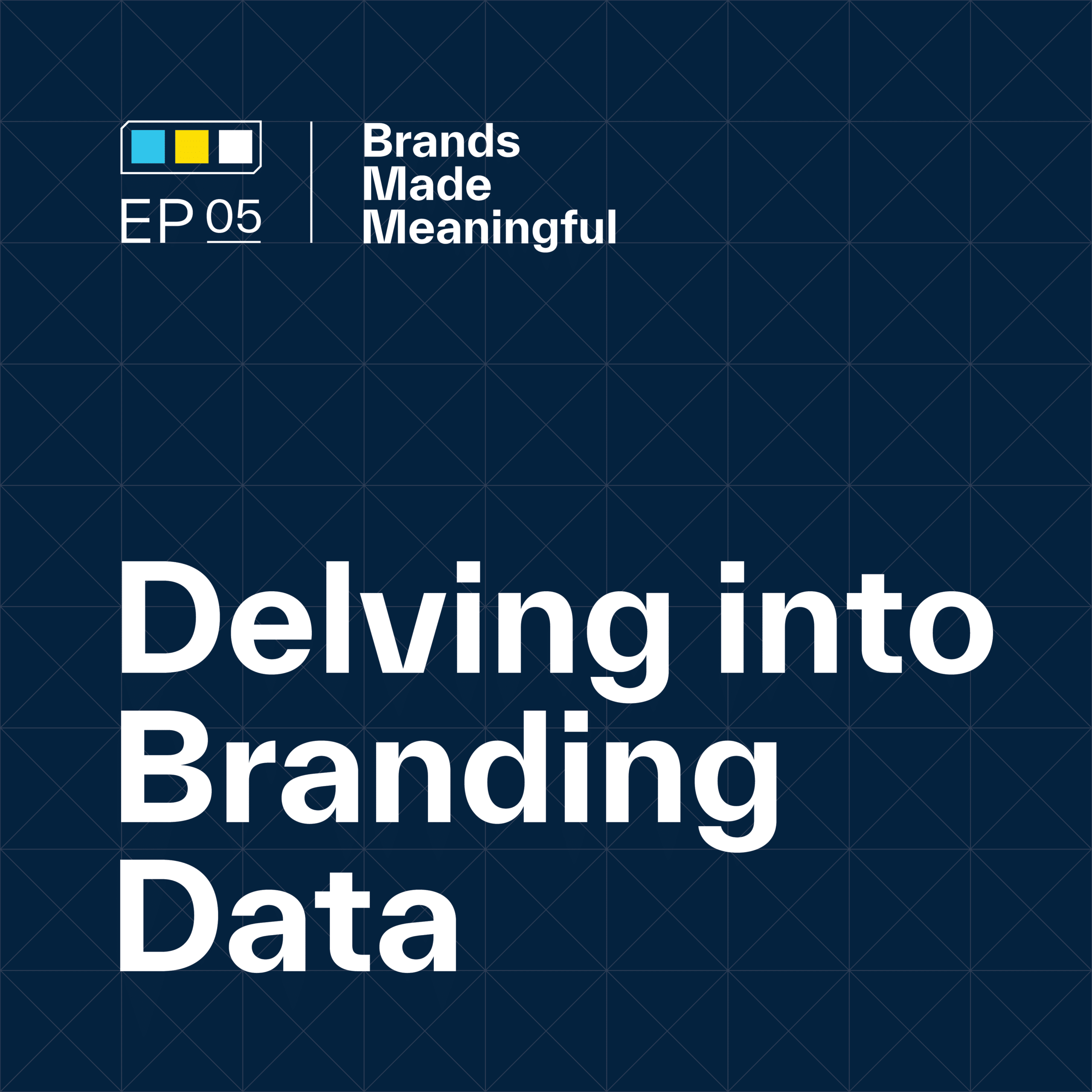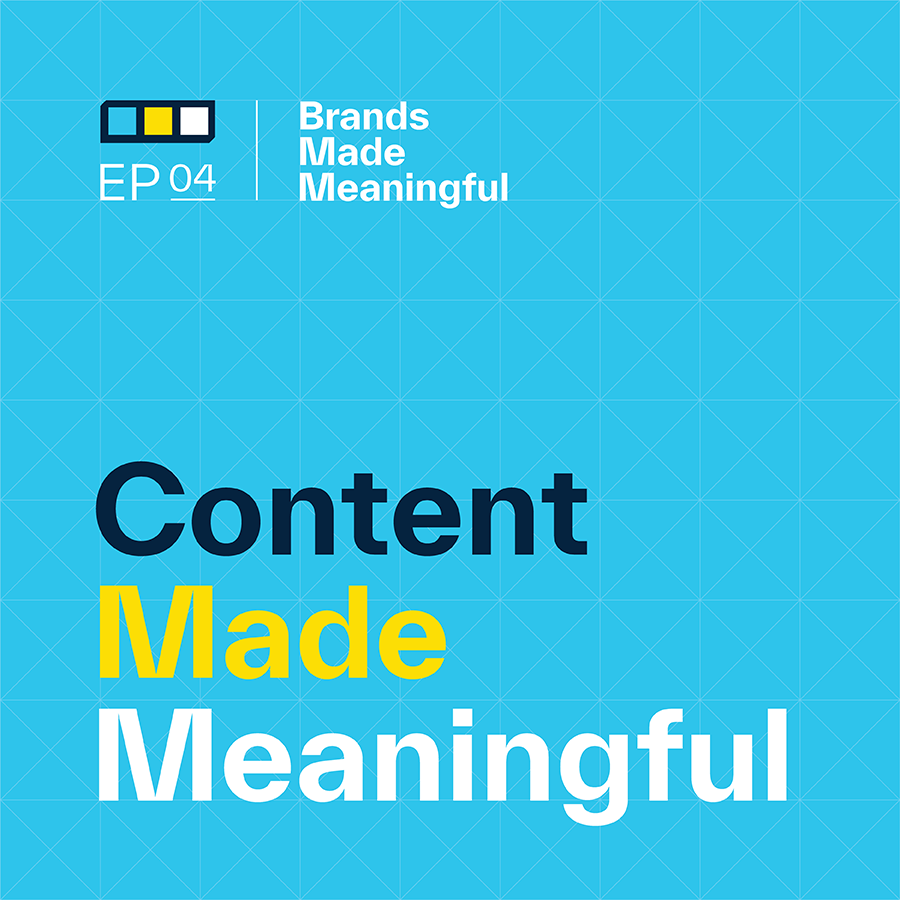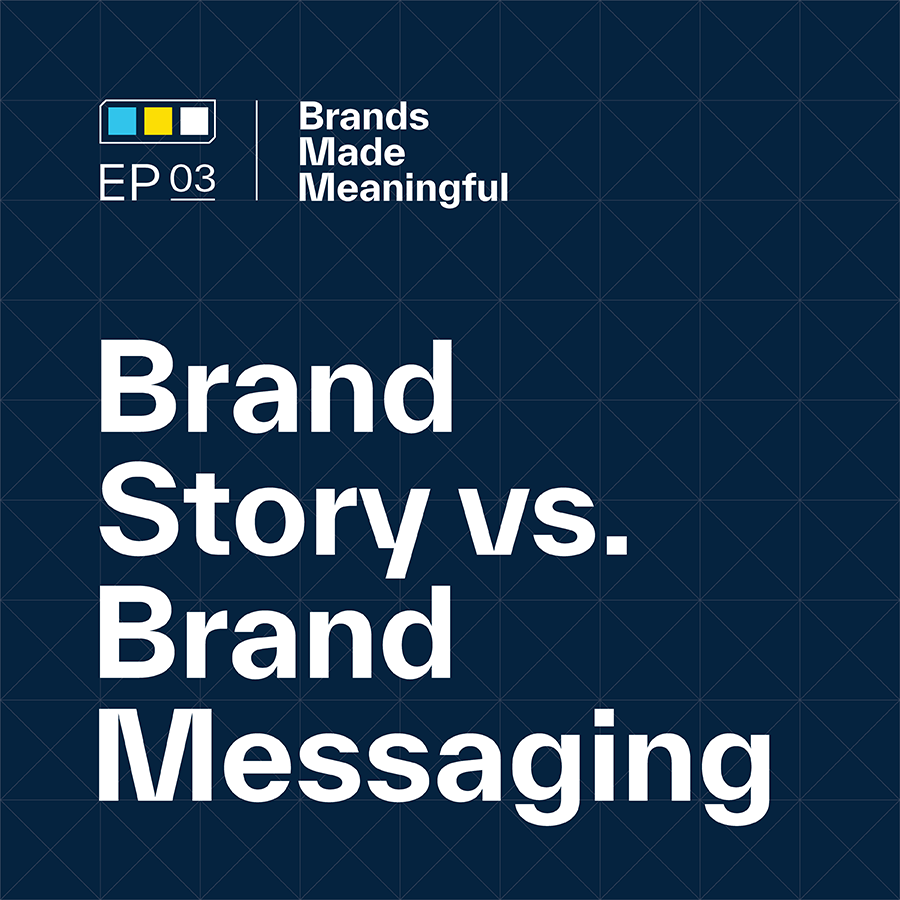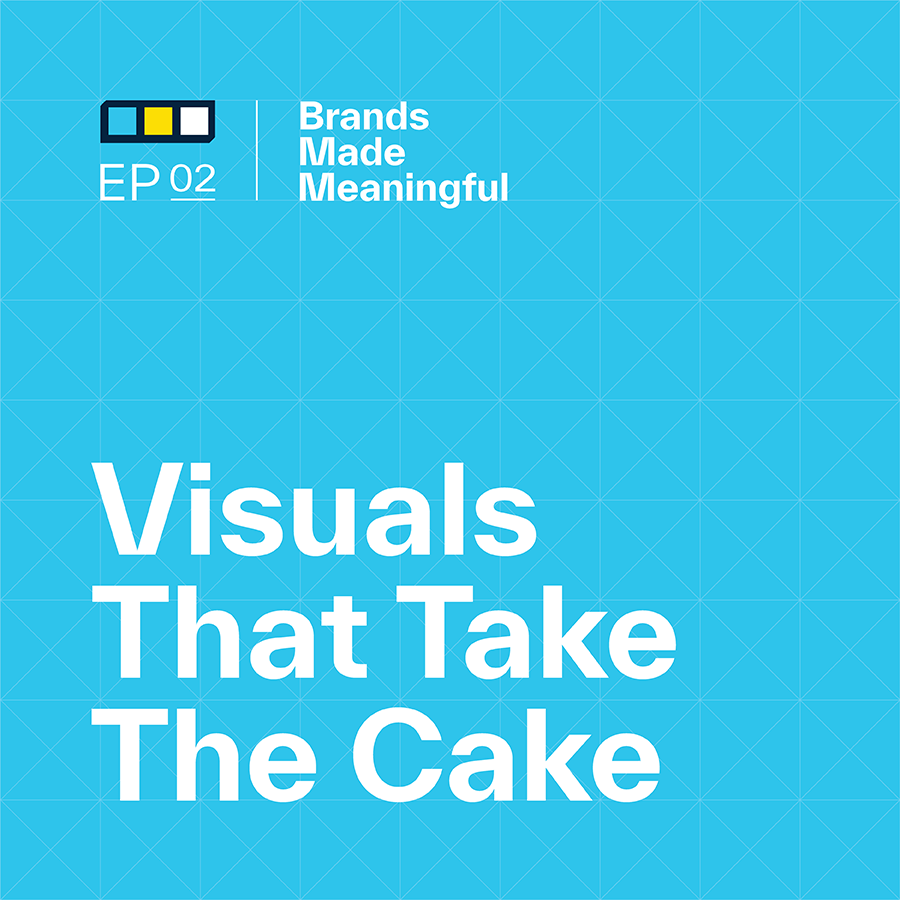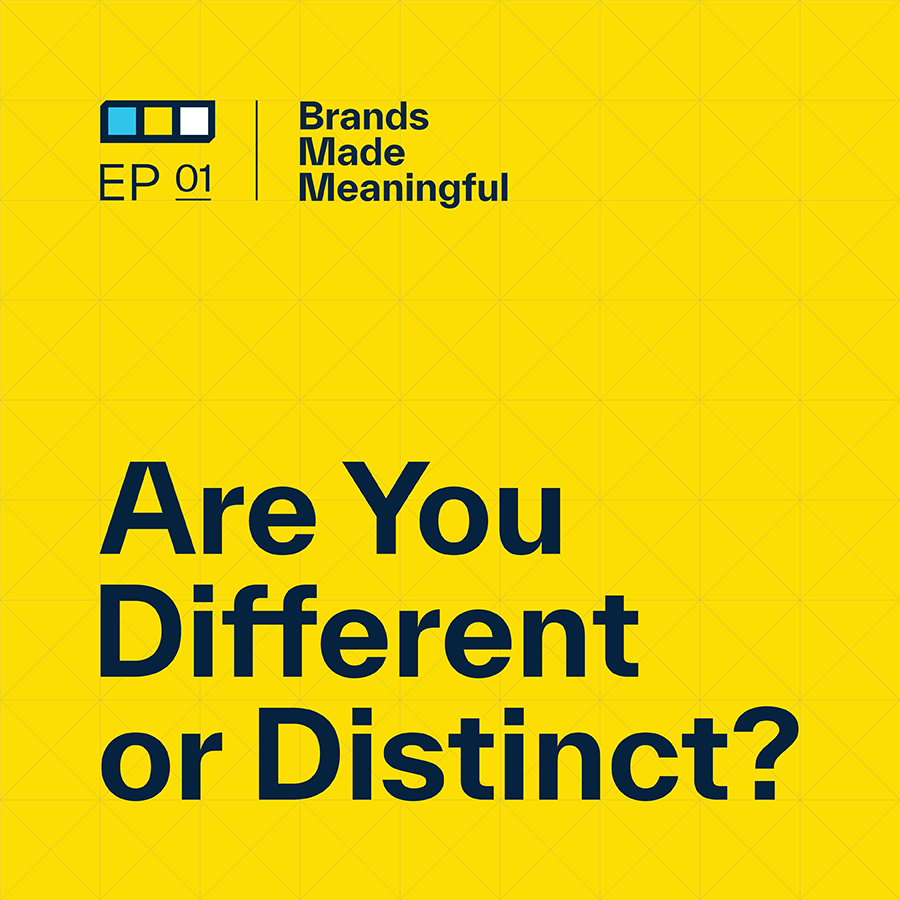EPISODE 16
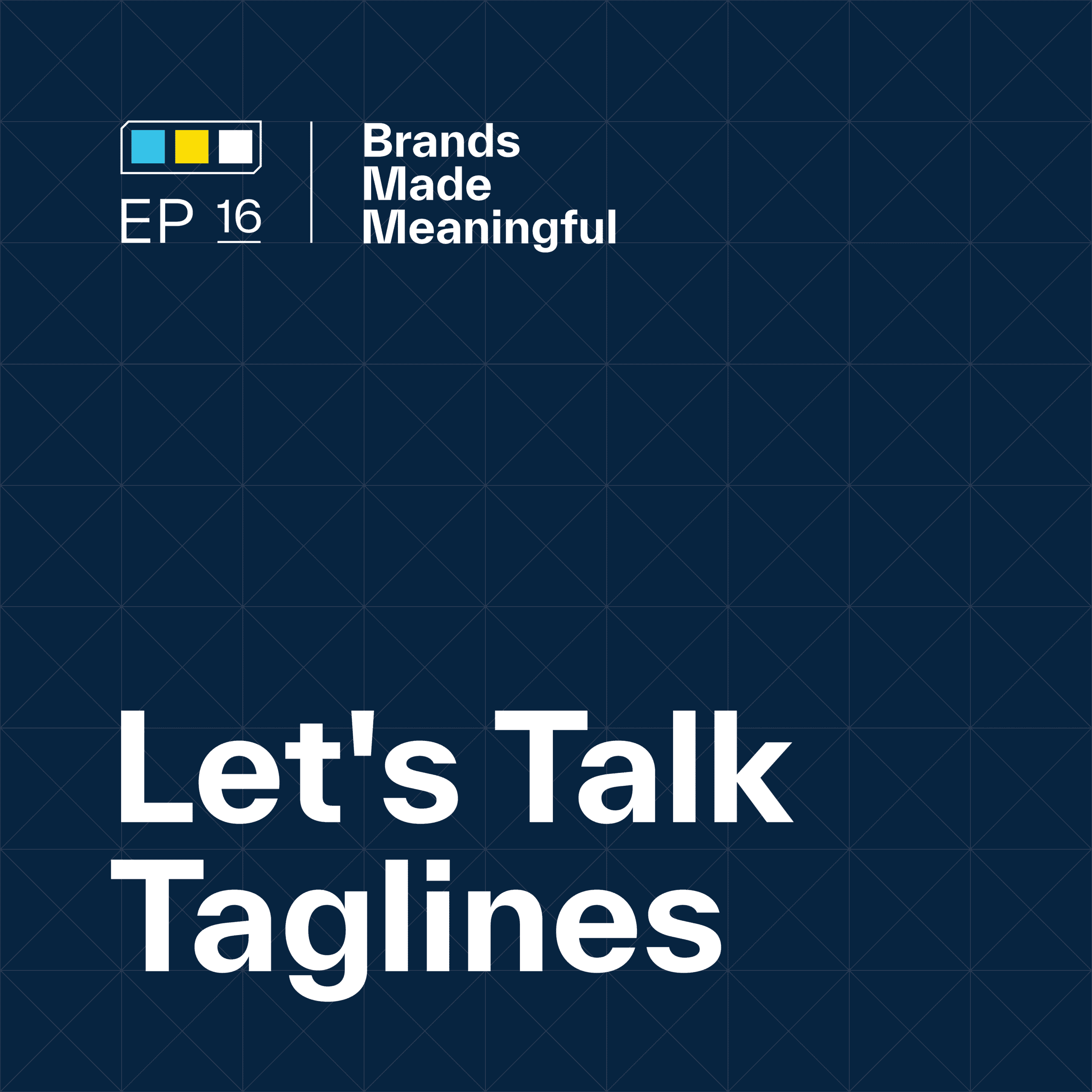
Let’s Talk Taglines
Episode 16
Derek and Tucker talk taglines in today’s episode.
EPISODE TRANSCRIPTION
Let’s talk about taglines.
Derek Taglines, messaging lines.
Tucker Some people call them creative lines. Some people use slogans. I think there’s a big difference between slogans and taglines. Some people use true lines, which are also different. There are a lot of words.
Derek Story Brand would call it a one-liner. Some people think of your elevator speech. I think some people might even confuse it with your value proposition or your positioning statement. But of all of these things, the brand tagline is probably, along with the name of the company and the logo itself, in that top-tier trifecta of brand components.
Expand Full Transcript
Tucker If you think of brand visuals, the logo is the tip of the spear. And when you think of brand verbals or brand messaging taglines tip of the spear, it’s that thing that’s the first outward-facing piece that people read, normally.
Derek I think some people take the tagline for granted and they default to describing their products, features, and benefits. You and I were having a conversation the other day and the question was, does a brand need a tagline?
Tucker I’ll get into that. I have it in my notes.
Derek But if they do, and if they do it well and they do it so that it actually helps their business grow, helps tell their story, it’s a key component that along with these other pieces that probably tag lines later on if somebody does decide to learn more, read more, then they’re actually diving in and hearing more of the story. But like you said, it’s that kind of the tip of the spear of the marketing language that pulls people in. And we have opinions and thoughts on what it is that the tagline should do, where it should come from, how to do it, and how to approach it.
Tucker Just like a logo, there are a million ways to get to the right answer. A tagline has, in my opinion, two functions. I’m going to define it in my own words. You can hop in if you have a different definition. I know that not everyone’s is the same. I think a tagline is two things. It is an outward-facing expression of a brand’s most compelling differentiator. So it’s the reason that you stand out in the market and why customers who know you use you, are associated with you. And the second one is that a tagline is a memorable phrase that sums up the tone and presence of a brand and is used to reinforce the brand in the audience’s mind. So there are two similar things but a little bit different and I can get into what that looks like. But what’s your definition of a tagline?
Derek We’ll talk global definitions because I think the tagline gets approached a little bit differently depending on what it’s for – if it’s for a company or an organization versus a product, a product brand, a consumer brand versus an internal brand or a sports brand. I think that there’s a variety of ways that we can look at it. I think at its core, a tagline should convey what you do as an organization. Even better, it should convey what you do in a way that connects with why people should care about what you do. And when I say a tagline should say what you do, I’m also hedging that against what I said before, which a tagline isn’t, which is a summarization of your products and those products’ features and benefits.
Tucker I think it’s what you do, but it’s what you do that’s different than what your competitors do. So the way that I describe that and you kind of started the conversation around what is a tagline specific towards B to C or B to B, or how that all works. Or a member brand versus a customer brand. And so you have all these different things. And I would say there’s a spectrum, there’s no right answer, but there’s absolutely a spectrum. So the way that we look at taglines in association to what you do, in my mind, it’s how familiar either that audience is with what you do or how many competitors are in that marketplace. So we’ve had a lot of success with taglines in the past. Some of the best ones, I think, come out when it’s someone who’s solving something completely new. And the tagline helps communicate exactly what they do because the people who see the brand have no idea what they do at all.
Derek Right. We talk a lot about that. One of the ways that we define a brand is that it’s the perception that people have of you, your organization, your products, etc. And within that perception, we’ve talked on this podcast about differentiation and distinction and being memorable and meaningful in the eyes of your audience. And the tagline can be a really helpful component in the verbal part of your brand in bringing about that distinction, memorability and differentiation.
Tucker And I think that it’s a mixture. What you said is a tagline should combine why you’re different and why people should care about that. And I think that’s the best version. That’s the shortest and sweetest answer you can have for what your tagline should be to communicate what you do and why. Why people should care. And in less than seven words, normally, we would say.
Derek The typical default is seven words or less. That’s people’s attention spans. That’s where people stop listening. It’s the word count that I think there’s some science behind memorability. Like even you, if I said to you, what’s Sussner’s tagline? Well, one of the reasons it’s seven words or less is because any more than that, and we’re going to have a hard time even being able to memorize that it’s Brands Made Meaningful.
Tucker I think it’s some old ad rule. I would imagine there’s probably a science behind it, but it could be magic. I don’t know.
Derek We’ll have to consult one of our scientific partners. We don’t have somebody yet that can fact-check.
Tucker We’re not at the point in the podcast where I can go, Hey, Steve, get it going. Let me know where that came from. It would be really good to hire one of those people, though. We should probably put out an ad.
Derek We’ll add that to the list. I think at its core, one of the ways that we’ve historically looked at taglines from a real hard-working standpoint is one of two ways. And I know you’re going to get much more ethereal and thoughtful on this, but there’s also the function of the tagline. When we work with businesses that already have a name, if the name of that business references what it is that they do, then the tagline doesn’t have to say again what it is that they do. Earlier I said a tagline should help a business say what they do. But if the name of your company is Viking Trophies, then you don’t have to say, we sell trophies. However, if the name of a trophy manufacturing company is called Acme Inc., then there’s an opportunity within that tagline to clarify what it is that they do and ideally do it in a way that reinforces the brand’s personality to help us intentionally support the perception of the brand that we’re we’re trying to create.
Tucker I think that that’s a good way to start the conversation. It’s like the ground level. There’s a reason why it takes us weeks or multiple variations to get the right tagline. It’s not what kind of business are you – here’s what your tagline is. But I think that looking at the name and how hardworking the name is can help us start the conversation around how hardworking does the tagline have to be. Like you said, if your name doesn’t tell your customer anything about your brand or your organization, your tagline will probably have to work a little bit harder to say, Hey, by the way, this is what we do.
Derek They’re probably going to need all seven words then.
Tucker We’ll fill that out a little bit for sure. So let me ask you a question. In your opinion, does every brand need a tagline?
Derek That’s a great question. I’m going to say no. I think every brand could benefit from one. But we’re working right now with an organization who is struggling with that same question.
Tucker And there’s no right or wrong answer. The way I answer that question is with another question by saying, do most or all people understand why your brand is different right away? I think that it really comes down to recognition. If you’re really recognized in your space, then it probably doesn’t need to do a lot of the heavy lifting or it might not need to exist at all.
Derek We’re big fans of Apple, of the Apple brand. It’s the tools that we use in our office. I think everybody in this office currently uses iPhones, not going to make any bones about it. It’s one of the brands that we’ve identified with. And I think along with brands like Target and a couple of other really notable brands, these are the brands that our clients or potential clients will reference in conversation from time to time. Oh, Nike’s the other one. So everybody looks at Nike, Apple and Target, at least here in the Twin Cities with Target being here, and they reference that. I don’t know if they still use it, but does Apple need a tagline anymore?
Tucker So this is where that argument is interesting because I could argue they do need a tagline because the tagline sums up the tone, the presence of the brand, and reinforces that mindset, reinforces that perception in the audience’s mind. So for Apple, everyone knows what Apple does. So the tagline doesn’t need to do any of that. All it really needs to do is really summarize the tone of the brand. So for Apple, it’s think different. That’s what we’re all about. If we were to say, Apple’s name doesn’t say what they do, then in theory they should have Apple Electronics – in a more creative way. But I think it’s interesting to say, do you need one? There are no rules. But I think a tagline always helps reinforce that position.
Derek I agree. And if you have the ability or the bravery to write a tagline and adopt a tagline like Apple, the beauty of it is, it does a great job of, in two words, summarizing everything that the company as a whole stands for.
Tucker And if you think of Apple’s beliefs.
Derek Its values.
Tucker Exactly. And so it’s interesting.
Derek It’s their why. It’s their purpose.
Tucker It’s also why someone should care. It goes right to why someone should care. Because they’re so confident that everyone knows their name anyway. McDonald’s. What is McDonald’s? I don’t know if they still use it – it’s, I’m loving it. That doesn’t say burgers and fries. It doesn’t say fast food anywhere. It just says, I’m loving it, because everyone knows what McDonald’s does already. So that’s where I get to do people know what you do? Are you familiar to them? That level of familiarity is going to really determine how much tone the tagline is going to have versus how much function it’s going to have. So I think when we talk about these things, every situation is so different. If you’re branding a manufacturer like Acme Shelving, we don’t need to say that they do shelving. That’s pretty cut and dry. So it’s interesting to start looking at different companies and say, it depends on your placement within that market.
Derek I’ve referenced this in the past, but there are some tools that we’ve been trained in over the years that we leverage from time to time that came out of the book Building a Story Brand. The three components that come up in the way that those tools approach writing this line that summarizes it includes looking at, or at least influencing what the tagline could be, the problem that the customers face, which is another way of saying why should they care. And then what it is that you as an organization does, or I would add, stands for, that actually addresses that issue. And then what is the aspirational aspect or this Y or this purposeful piece that helps you communicate why this business is in existence to serve these people with this product in the first place. So I’m kind of jumping ahead to the later on of how to do it. It’s not the formula, but it’s among some of the other things that we’ll talk about that people can start thinking about as they’re thinking about their tagline. Does the name of my business say what we do? Ours doesn’t. The name of our business is Sussner. That doesn’t say what we do. So, therefore, how how can the tagline support that by putting us within the realm of what we do but then ramp up or address some of those other components.
Tucker So a good example is ours has to say what we do and why that’s different than anybody else. We don’t have as much space for why someone should care. We could stretch it and use more words. And what we came to was, it’s more important for someone to read that and say, okay, Sussner, are our brands made meaningful? So obviously they make brands meaningful. And what does that mean? Think about it a little bit and our homepage should then lead them down that route.
Derek That’s what a lot of people get hung up on. You know, in three words, you didn’t say enough. But the tagline isn’t meant to tell you the whole story. It’s just enough to say, All right, I think I’m in the right place. Tell me more.
Tucker It just depends on what foot you want to lead with. It really does. For Apple, if you’ve never heard of Apple, ever, and you say, okay, Apple, they’re different. That’s interesting. I don’t know what they do. You land on their home page. You know what they do. Their products are right there. But it’s interesting to go, by the way, this tagline doesn’t get shown by itself. This is not a by-itself situation. Most of the time you’ll read it and there’ll be other experiences around there that might help communicate the other thing. So you got to think about it as part of a tool kit. Not just a lone wolf sitting out there.
Derek You mentioned something earlier that I’d love to transition into a little bit. You said the word slogan. So this question comes up all the time. From your point of view, what’s the difference between a brand’s tagline and a slogan?
Tucker I think everyone has a different definition of slogan. What I define as a tagline, people would say, no, it’s a slogan.
Derek But some people see them as interchangeable.
Tucker Absolutely. What we have come to know as slogans are more campaign based. They’re more short-term. We’re selling a specific thing. We’re going to run it. We’re going to create a slogan for this campaign. Normally, that’s how we work.
Derek So that’s marketing.
Tucker Exactly. It’s like, here’s one product. We’re selling this. This is what we’re pushing. We’re going to go after it. We want to be known for this moment in time for this product. Or this service, and we’re going to write something that’s really catchy for that. Those usually don’t last as long. Normally they’d just last throughout the campaign. We’ve had local brands have slogans that have actually turned into really successful long-term pieces that stick with them for a really long time. And that’s great. But they’re not created the same. So when you go off to create a slogan, you’re not normally going to end up with a tagline.
Derek You think of a slogan as something that’s written and created to help support the promotion, the marketing, or the advertising of a specific product or for a specific campaign. It might be the theme line or the headline or one of the headlines in a series of marketing campaigns, and it’s usually targeted to a very specific audience for that product so a slogan can change all the time. Some companies change them every year, every quarter, or depending on how many markets they have. The slogan has a shorter life span, whereas the tagline should be so much more tied to the truth of the organization that, while it certainly isn’t permanent, it should last for a long time.
Tucker I think some people would consider taglines interchangeable. Like, I’m going to write this tagline. I could always change it. I look at taglines like the logo of messaging to say eventually you’ll refresh your logo. Whether that’s eight years, whether that’s 12 years, whether that’s 25 years. I think that the tagline will last about the same.
Derek I agree.
Tucker For a slogan you have a fantastic example here.
Derek The Disney one. Hopefully I’m researching in the right place. But Disney’s tagline, which again we need our fictitious team to fact check, goes back for years and years and years. Disney is the happiest place on earth. Disney – the happiest place on earth. But think about the slogans at the end of every Super Bowl when they say to the MVP, hey, you just won the Super Bowl and they go, Yeah, I’m heading to Disneyland. Or Disneyland is where dreams come true or where the magic began. And I’m sure since then there’s hundreds of them every time they roll out a new Star Wars theme park. Every one of those has a new slogan, theme or marketing language that’s going to help promote that.
Tucker I bet you could look up on YouTube right now all the ad campaigns that are mixed with those. You can see where the happiest place on earth has kind of become this evergreen usage for them, where it’s like, nope, that’s our stamp. That’s what we live by. And then all these other slogans end up being campaign based. So it’s not the worst thing in the world to have slogans. It’s actually great. That means that you’re constantly working on your marketing. You’re constantly coming out with new things. That’s awesome. It’s not like a negative thing at all to have a slogan. It’s just that tagline is more evergreen. It’s not supposed to be pushing your one product that you’re trying to get out the door right now, or it’s not supposed to be a part of this one campaign that never gets used again.
Derek So at this point in the conversation, this is where I’m thinking about people who are listening to this. They’re thinking about their own tagline, and let’s assume they have one. If a person has a tagline and they’re looking at it now, whether they created themselves, hired somebody or inherited it or adopted it from previous people on your team, and they’re looking at that tagline and they’re saying, okay, I’m reading this. Is this an effective tagline for us or not? What are two or three things that we can say? Here are some ways to analyze it or review it or think about some criteria and say, Does it do this or this? And if not, then that person might need to be thinking that it’s time to address it.
Tucker One is, absolutely it’s too long. We’ve dealt with people that have it where it has to be stacked it’s so long. It’s like, this is really long. Are we sure that this is a tagline? And they normally are just using their positioning statement, which is probably 12 words or maybe even less, but it’s just too long. Sometimes seven words is too much. People say seven words or less. Normally we try to keep it within five or less. That’s not a bad thing. It just needs a little bit of work. The second one, I think, is when people have a tagline that is not around their tone, when there’s no personality in it, when it’s just super functional and that’s all it does and there’s no thought behind it. That’s when people have a challenging time getting anywhere with that tagline.
Derek If it’s void of personality, such that your direct competitor could take that same tagline and use it and put it next to their name and nobody would bat an eye. It would be like that sounds just like them too.
Tucker Because the tagline we talked about is supposed to be about your position. A part of your position are those emotions and personality. Like what tone does your brand have?
Derek It’s the point of view.
Tucker Big difference in the marketplace. But to say if you are too descriptive, that you’re focused on products and maybe just the benefit of your product. I get that hat’s why people care is the benefit of your product but no personality at all makes it hard to have an evergreen tagline.
Derek We have a whole list of these things. Taglines that are confusing, boring, not differentiated, which I think goes back to not standing out or sounding the same as everybody else. There’s also something about your tagline being about you and only about you. We make this. We do the best of this. We’re the experts at this. We’re the first at this versus writing it in a way that somehow flips it to the customers and what they want. We’re going to jump down to what are some things that people could be thinking about when we think about a company’s guiding principles. So just instead of just a marketing exercise and a copywriting exercise, leveraging and looking at a company’s vision and mission could be a really great place to start, assuming that you have one.
Tucker I think that when we start that process, we talk about the name and how hard is the name working. Some of those are parameters. How are we starting this? How do we know how hard this needs to work? Those are first and foremost. When it actually gets into the creative process – where do we start? You don’t just start with a blank page. For us, the best thought starters are that vision, mission, purpose statements. Those statements are fantastic. We’ve had plenty of times where that vision, the new vision of the company, turns into the tagline, or some variation of it, because that vision represents this place we’re trying to go, this place that everyone cares about, and it’s so meaningful to everybody that that’s a great starting point to go, could that be our tagline?
Derek The way that we define vision versus how other people define it is that it’s all about where the company is going and what is the goal of our work. What is the ideal state that we want to be in and invite our customers to live in? But a really great vision rallies everybody inside our company just as much as it rallies people that are outside of our organization.
Tucker And that’s a big difference. So if we look at it from a tagline perspective, to say this tagline isn’t about you, you’ve already said that, but to say you can’t have an accounting firm and your tagline be expert accountants because good for you, what does that matter?
Derek Add that into the about us paragraph that follows down below.
Tucker Exactly. And so if we’re going to look at how can we start moving that, a vision is a great place to start because that vision is supposed to be a statement that is about us, but it’s also about we work to do this with our clients. We don’t work to be the best.
Derek Obviously, you’re writing this messaging. It is about you. It’s about your company, and it’s about helping your company spread the word, build its perception, differentiate, etc. But if you can bridge that and actually make it so that it’s about your customers, it gets really powerful and helps connect on a deeper emotional level. I’m looking at a board in our conference room where we’re setting up making this recording today for an organization that we worked with where we help them put together, articulate and craft their purpose and vision and mission. And their brand tagline is almost verbatim of what we landed on for their company’s vision.
Tucker And for those of you who don’t know what we’re talking about, it’s Game One Sports.
Derek Game One Sports.
Tucker Game One. It was a really great conversation around Who do we want to be? What do we want to do? And it’s like, Oh, well, that’s what we’re trying to do. And why does it matter? So when we move forward through this process and the reason why it’s a creative process, we don’t just start with a tagline. You wouldn’t hire us to just do a tagline and walk away. There’s a lot of background work to say, what goes into a tagline? Well, all of this stuff goes into a tagline. We need to know all this information. What are you working for? What are your clients doing? What do they care about? What do your customers really want out of this situation and how do you move them forward? Now let’s figure out how we can write something that communicates that with a bunch of personality and tone that’s totally different than anyone else.
Derek Exactly. We wrote one tagline along with one of our copywriting partners, Jeff Bueller at Floating Head. Shout out, Jeff. When you’re transcribing this into a blog for us later, I want to make sure you give yourself lots and lots of lots and lots of kudos credit because you deserve it. Jeff wrote a tagline with us for a sporting goods brand called McDavid. And McDavid makes compression undergarments and braces, clothing items that primarily are worn underneath your sports equipment, and sports apparel for football, basketball, baseball and all manners of sports. And the tagline that we landed on, the brand tagline, is – First on, last off. So double meaning.
Tucker Yeah.
Derek It does speak to them. They’re the first article of clothing that you put on if it’s an undershirt and it’s the last thing you take off as you’re getting undressed. But for them, what it really meant, McDavid’s vision was to create a world of personal bests. To live in a world where people have the opportunity to achieve through, whatever their athletic endeavors are, desires are, what it is that they want. And they identify those people as people that are driven to be the first ones on the field, the gym, the court, and the last ones to go home.
Tucker So if you think about that from a vision perspective, to create a world of personal best, that’s something that McDavid builds their products around. Our products are built to do that, but we can’t do that without you because if you’re not trying, if you’re not in the gym, if you’re not running, if you’re not getting up early, then you’re never going to achieve that personal best. So without you, we can’t achieve it. But they felt like this first on and last off communicated not only the products, what the products they sell do, but it also represents the tone and the personality that they take forward. It’s all about grinding. It’s all about being the hardest working people in the gym.
Derek When it’s done well, it can really help, not only give you a component within your branding as a verbal part of your branding, it can then influence and become part of the visual part of your branding also.
Tucker That tagline for McDavid is all over their materials. The words are powerful and then the way that they’re shown are even more powerful.
Derek But it’s different than the slogans and the themes and the headlines that then lead each year’s, quarter’s, or sports specifics marketing campaigns.
Tucker We’re looking at some campaigns right now. I see it behind you in our office. And one of the slogans for McDavid is – It’s on me. That was a whole campaign around it’s on me. I got to do this. Personal best, that’s on me. How do I move that forward today, tomorrow and the next day? That happened throughout a season and then was later moved from but first on last off never was.
Derek One other example is Cutter Sports. They make, arguably, I think factually, the stickiest football gloves on the market. We’ll have to ask Steve again but I do believe there is an actual accreditation that they submit these to to get tested.
Tucker The sticky police.
Derek And so wide receivers and tight ends in football are the people you would think of that, although you see quarterbacks in other positions wearing the gloves, the receivers wear these by choice because they’re sticky and they help catch. And the line that we landed on for Cutter’s tagline actually comes out like a call to action. And it’s – grip the greatness. The name of the business is Cutters. Most of the time they don’t even say Cutter Sports. They just say Cutters – grip the greatness. So they don’t say gloves or sticky. Instead, they’re referring specifically to the emotional want that the people who are jumping up to make these photographic ESPN highlight reel catches in the back of the end zone – what that person is motivated by.
Tucker You can see where those brands are much more consumer-facing, have been much more emotionally driven, a lot more tone and personality in them versus local Franklin Press that we rebranded. Their tagline is print, impress, repeat. It was all about just blowing their customers away with what they do. And it’s exactly what they do. They print. They impress. And they repeat. That’s what they do.
Derek If anybody has the pleasure of meeting the team at Franklin, the blue collar, personal nature, they’re not about flashy, they’re not about winning awards. They’re about servicing their customers, keeping their heads down and working their tails off.
Tucker And doing it again.
Derek What do we do? We print, we impress our clients, and then let’s go back. We go back to work. That’s what we do.
Tucker I think that that shows the difference of B to C versus B to B. We talk about it all the time. It’s also just how much exposure that brand gets on a public scale.
Derek We did stretch the seven words with Carbone Pizzeria where we landed on, a slice of the neighborhood since 1954.
Tucker That’s because I wasn’t in that project.
Derek That’s true, so we can stretch that out. But I think we’ve been using that one for ten, 12 years now. The idea of positioning themselves as the local neighborhood pizza joint and then leveraging the fact that they’ve been doing this for a very long time.
Tucker We’ve used it without this “since 1954” as well. So you just have – a slice of the neighborhood. That’s only five words. That’s in my rule book – okay.
Derek So as we wrap this up, what’s one thing people should be thinking about either in reviewing their current tagline or considering if they need a new one?
Tucker Why do people care about what you do is a big question that you should answer. If you don’t have an answer to that, either answer it or call us right away. No matter the time of day, just right away. Because that’s a big, big question. If you don’t know why it matters. Obviously, you know what you do. But why do people care is a really big point. So if you know why people care, I’d start with that. And two, if you know the personality, the tone of the brand that you are, the brand that you’re trying to create, use that, use that a lot. Those two things are going to really help you come up with ideas. And if you can’t get there, then just keep trying. I think we’ve tried. There’s been times where a tagline just doesn’t come right away because it’s a difficult process.
Derek You’re only allowing ourselves to use seven words.
Tucker And it’s almost easier to write down, why do people care? Write it all down and then start refining from there rather than trying to come up with the five words right on the spot.
Derek It’s almost like writing the headline of the book or the title of your book. Oftentimes you may have a working title, but the final title doesn’t get written until after the story gets expressed. And then that story can be summarized in seven words or less.
Tucker There you go.
Derek Seven words or less.
Tucker All right.
Derek Until next time.
Tucker Thank you.
More Episodes Like This
Building Brand GuidelinesEpisode 65
Derek and Tucker show us how to build infrastructure guidelines to unify your brand experience across the board.
Club Identity SystemsEpisode 64
Derek and Tucker cover what Identity Systems entail and how to discern between internal and external methodologies.
Navigating Branding With a BoardEpisode 63
Derek and Tucker bring clarity to uniting your company under one cohesive vision.
Putting a Committee TogetherEpisode 62
Derek and Tucker assemble your need-to-know facts when putting together your committee.
The Guiding Principles of Private ClubsEpisode 61
Derek and Tucker go over the top ways private clubs can find the balance between pleasing old members while attracting new ones, all while making moves towards the future.
How Color Affects PerceptionEpisode 60
Derek and Tucker cover how to best convey your business with color.
Brand EcosystemsEpisode 59
Derek and Tucker break down how to craft effortless experiences when considering your brand as a whole.
6 Types of Brand TransformationEpisode 58
Derek and Tucker dive into 6 distinct types of transformations for a wide range of brands.
Tournament Branding For ClubsEpisode 57
Derek and Tucker discuss designing and delighting your club members with tailored events.
Brand Promoters & DetractorsEpisode 56
Derek and Tucker discuss how high level promoters increase your NPS and how to turn the tides on your detractors.
The Loudest Voices in the RoomEpisode 55
Derek and Tucker talk about gathering feedback while prioritizing every voice.
Determining A Primary AudienceEpisode 54
Derek and Tucker discuss if and when you should be honing in on your audience vs. casting as wide a net as possible.
Branding For ExclusivityEpisode 53
Derek and Tucker discuss the intricate process of naming your brand.
Measuring Brand SuccessEpisode 52
Derek and Tucker discuss how we measure our success in branding and a few key KPIs that help us understand our impact.
Branding For ExclusivityEpisode 51
Derek and Tucker breakdown how brands can create the perception that they are exclusive and only for a certain type of consumer.
What Makes A Brand SurprisingEpisode 50
Derek and Tucker break down the Sussner formula that we believe leads to a surprising brand.
Breathe Life Into Brand TraditionEpisode 49
Derek and Tucker discuss the intricacies and common pitfalls of branding for Private Golf Clubs.
They Key of Visual DifferentiationEpisode 48
Derek and Tucker break down the importance of differentiating your brand on a visual level.
Branding For Private GolfEpisode 47
Derek and Tucker discuss the intricacies and common pitfalls of branding for Private Golf Clubs.
Dealing With An Identity CrisisEpisode 46
Derek and Tucker breakdown how to identify and remedy a brand's identity crisis throughout thoughtful and intentional brand management.
Branding vs MarketingEpisode 45
Derek and Tucker discuss the differences between Branding and Marketing and how to make the two compliment each other.
Build Your Brand's FoundationEpisode 44
A brand's foundation is a critical element in being successful in the long-term.
Building a Constructive Branding ProcessEpisode 43
Derek and Tucker break down the steps required to build the most constructive and meaningful branding process.
What Makes a Brand Relevant?Episode 42
Relevance is a key piece of a brand's identity for creating clarity and connection.
Your Right to WinEpisode 41
Derek and Tucker discuss the “Right to Win” and the odds of your brand's success within your target market.
An Intro to Sub BrandingEpisode 40
Derek and Tucker discuss the nuances of developing sub-branding and strategies.
Conquer Branding FearsEpisode 39
Derek and Tucker dive into how to overcome the fear of change and the nature of constant refinement of your brand.
Balancing Strategy & DesignEpisode 38
Great strategy is a necessary foundation for great design—and great design brings great strategy to life.
Branding PrioritiesEpisode 37
Branding priorities are the actions and initiatives that shape or enhance a brand's identity, perception, and market position.
Invest in Your BrandEpisode 36
Investing in your brand benefits your company as a competitor in the marketplace, builds trust with customers, increases perception of quality, and drives employee engagement.
Why is Positioning Scary?Episode 35
Narrowing the brand's position is really a strategic decision to focus the brand's offerings, messaging and target audience on a specific niche or segment within the market.
What Are Brand Consultants?Episode 34
Derek and Tucker discuss the importance of hiring expertise with a wider breadth of knowledge than just visuals.
Hire for Brand FitEpisode 33
Hiring people that fit your brand is key in order to maintain brand authenticity, positive culture, and consistent messaging.
Your Brand’s Stance MattersEpisode 32
Your stance can help define your brand from a core level and make branding, hiring, and marketing not only easier, but more meaningful.
Levels of Executing a Brand RefreshEpisode 31
If you have a brand strategy in place, how do you execute it?
The Role of Features & BenefitsEpisode 30
Derek and Tucker discuss the importance of features and benefits within the context of branding, selling, and marketing your products and services.
Should You Listen To or Lead Your Customers?Episode 29
Within the challenge of any rebrand is the challenge of managing customers' perception of change.
Managing a Brand TransformationEpisode 28
Episode 28 discusses the highlights and challenges of rolling out a new brand, both internally and externally.
Living Your BrandEpisode 27
Your brand is not this shiny trophy on the shelf. It is something that you are molding every single day.
What Makes a Brand Authentic?Episode 26
Season 2 starts off with a discussion about building authentic brand experiences, both internally and externally.
Reviewing your Competition's CreativeEpisode 25
Derek and Tucker discuss the process of reviewing your competitors' creative strategy to better position your brand within the market.
Interviewing your Audience for InsightsEpisode 24
This episode details the process and benefits of interviewing your audience as part of the branding process.
Assumption ReversalEpisode 23
Derek and Tucker discuss how we change our thoughts and get into a different mindset to refine and revise our branding.
Developing vs. Amplifying a BrandEpisode 22
Another way to say it is, development is building and crafting your brand story, and amplification is then telling it.
Refreshing a Sporting Goods BrandEpisode 21
This episode shares the steps behind Sussner’s work in refining the Shock Doctor brand.
Defining PerceptionEpisode 20
Derek and Tucker discuss the positive and negative impacts of brand perception.
What is a Brand?Episode 19
Derek and Tucker discuss what defines a brand and what makes them successful.
Branding Golf Courses vs Golf ClubsEpisode 18
Derek and Tucker further hone in on golf course design.
Refreshing a Golf CourseEpisode 17
Derek and Tucker discuss the bar for golf course design – and how to push past it.
Let’s Talk Taglines Episode 16
Derek and Tucker talk taglines in today's episode.
Refreshing an Athletic DepartmentEpisode 15
Derek and Tucker sit down today to discuss what logos mean within branding.
Branding a Club Episode 14
Derek and Tucker discuss how to brainstorm branding a club.
An Intro to Internal Branding Episode 13
Derek and Tucker discuss the power behind internal branding.
The Value of Stereotyping Episode 12
Derek and Tucker sit down today to discuss the meaning of stereotyping within the branding world.
We’re on a Mission Episode 11
This episode digs into the rallying cry for the greatness your team is going to accomplish.
Aren’t Brands Just Logos? Episode 10
Derek and Tucker sit down today to discuss what logos mean within branding.
The Business You Are Really In Episode 09
Derek and Tucker sit down today to discuss how to discover what business you are really in to better understand your mission statement.
Clarity of Vision Episode 08
Derek and Tucker discuss the importance of looking ahead towards the big picture to better hone the purpose behind what we do in the now.
Branding B-2-B Environments Episode 07
Derek and Tucker discuss the Branding of Spaces.
It’s All in the Name Episode 06
Derek and Tucker discuss what a name can say - and not - about your company.
Delving Into Branding Data Episode 05
Derek and Tucker jump into the discovery phase of branding before it hits the drawing board.
Content Made Meaningful Episode 04
Today Derek and Tucker discuss the concepts within content and its common misconceptions such as the phrase "Content is King."
Brand Story vs. Brand Messaging Episode 03
Your story matters.
Visuals That Take The Cake Episode 02
Derek and Tucker sit down to discuss visual impact and what that could mean for your brand.
Are You Different or Distinct? Episode 01
It's not about being the only option, it's about being the right option. Join Derek and Tucker as they discuss Differentiation & Distinction.


